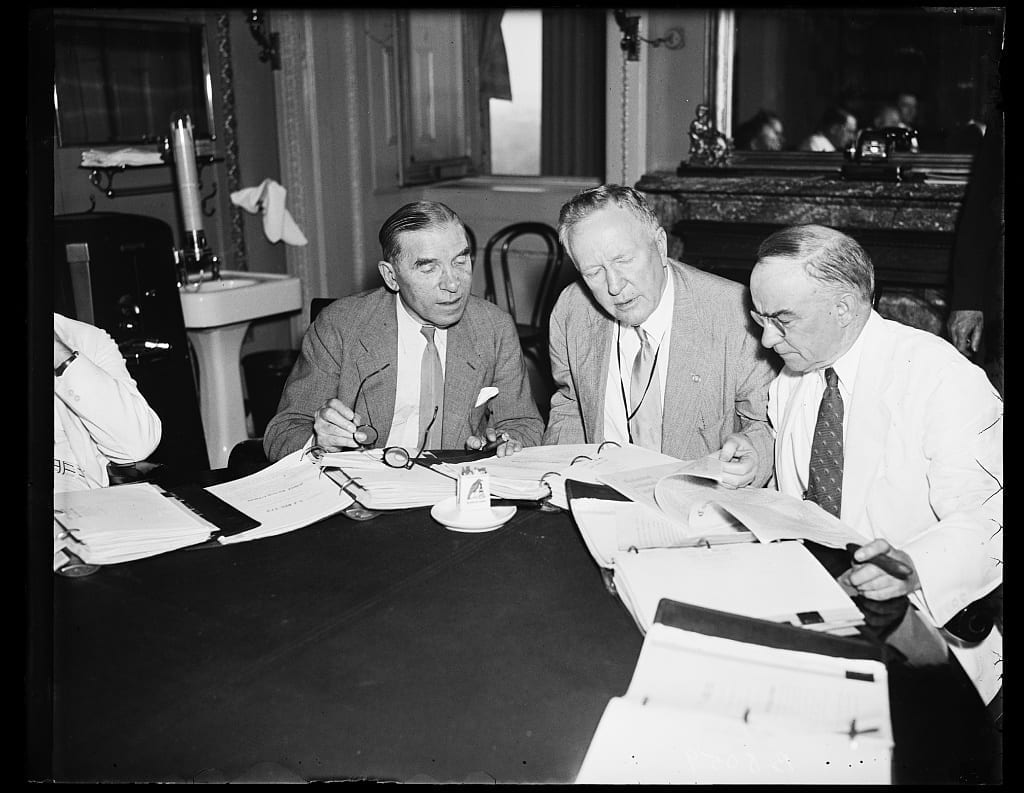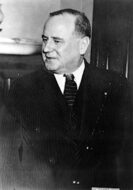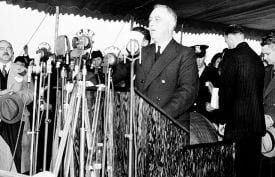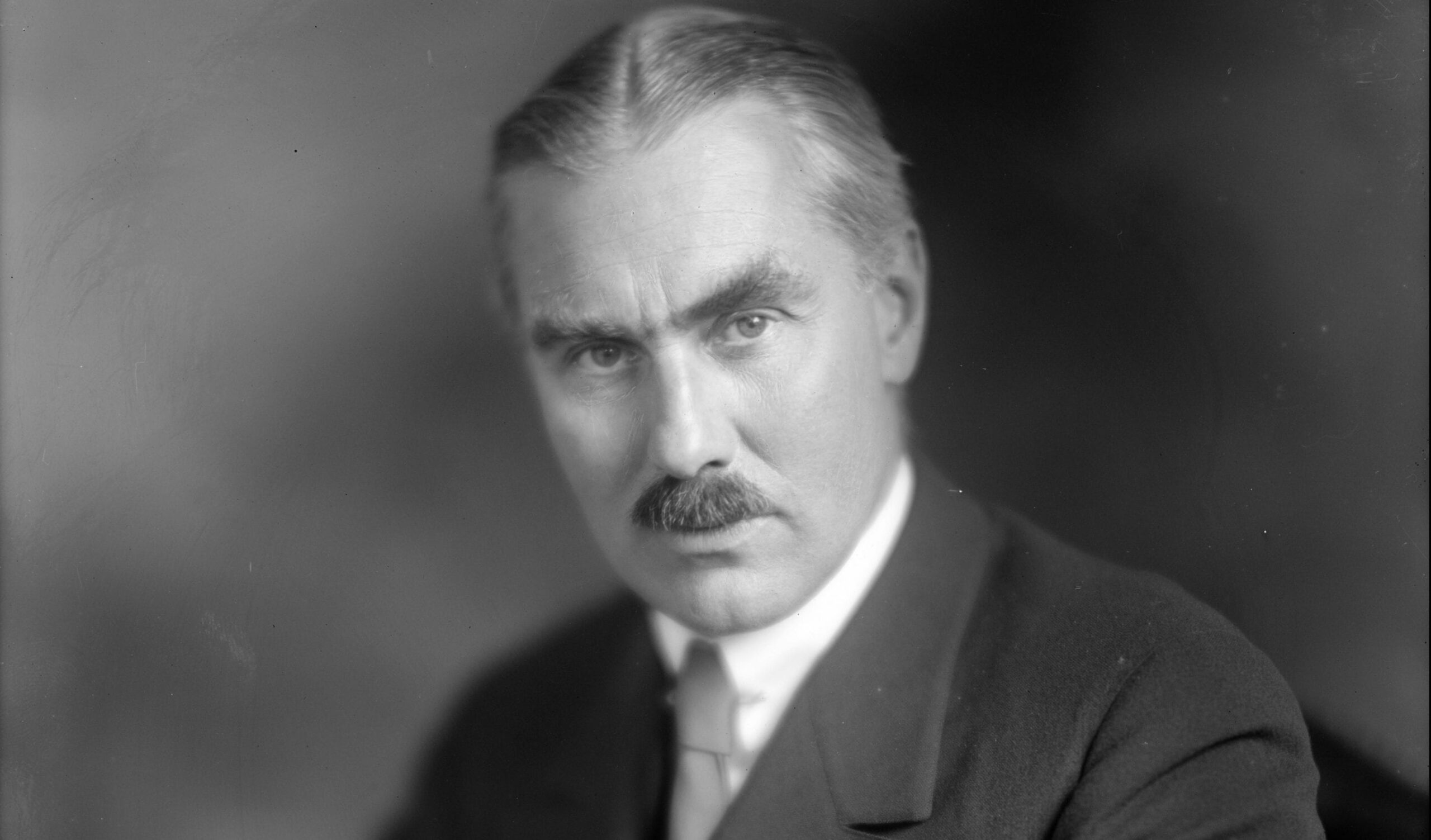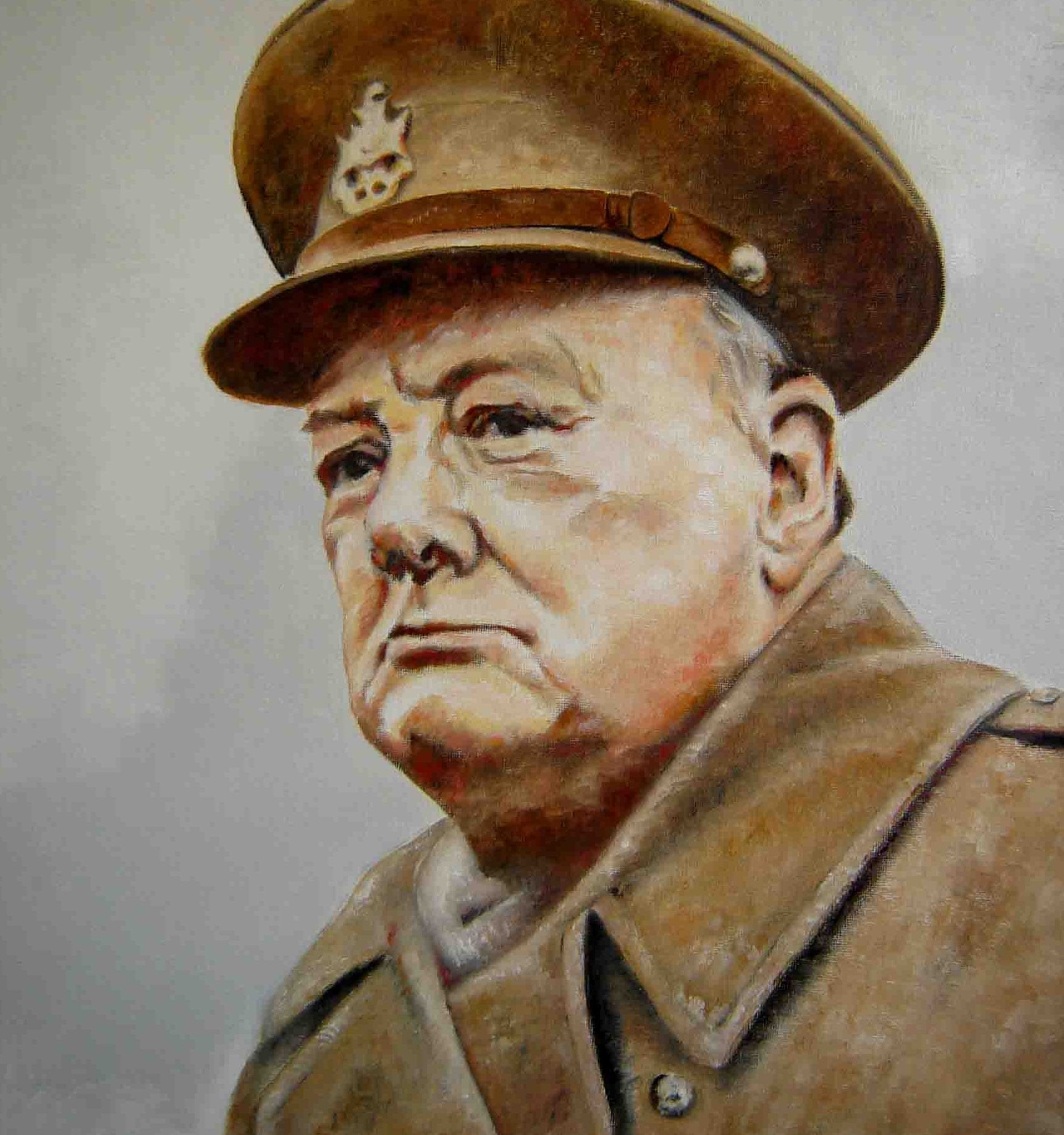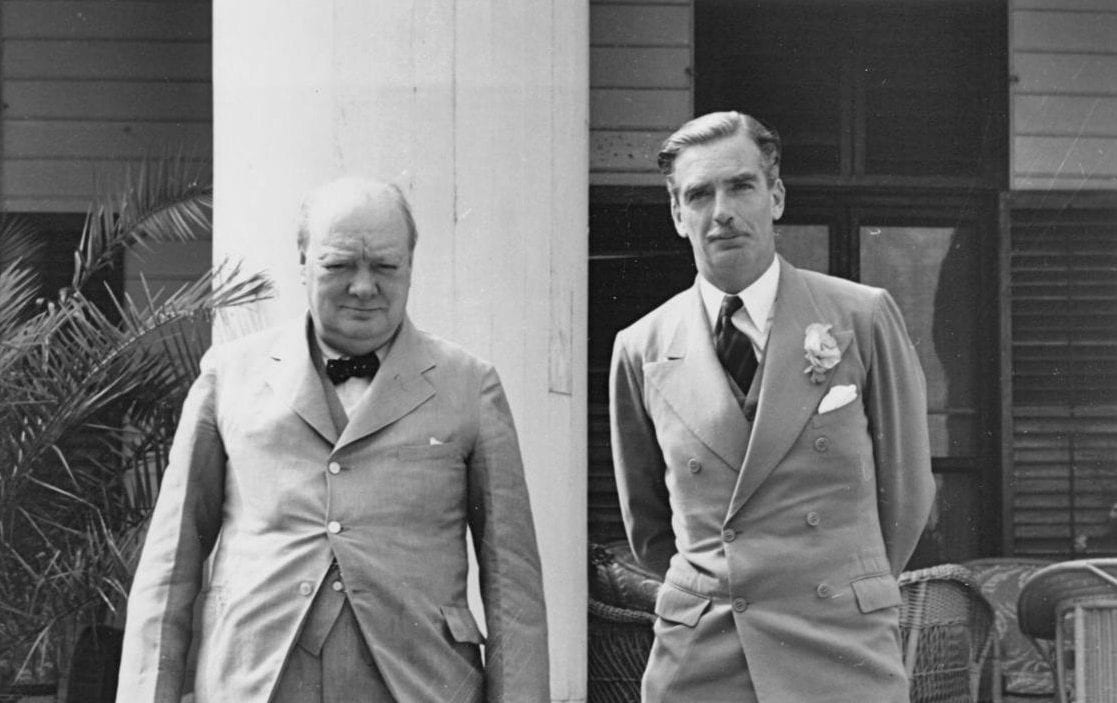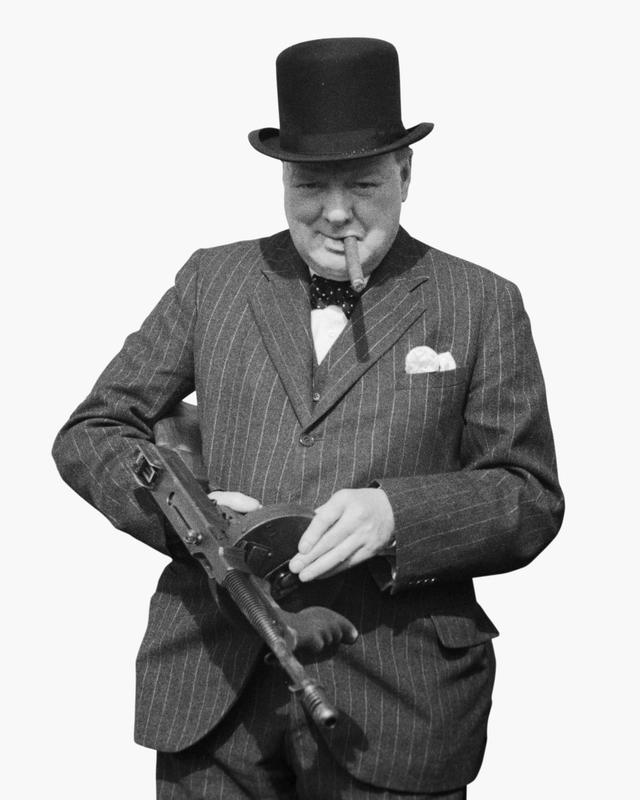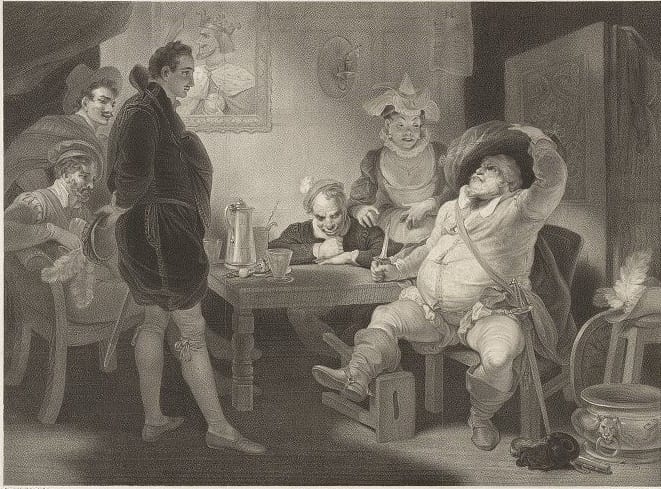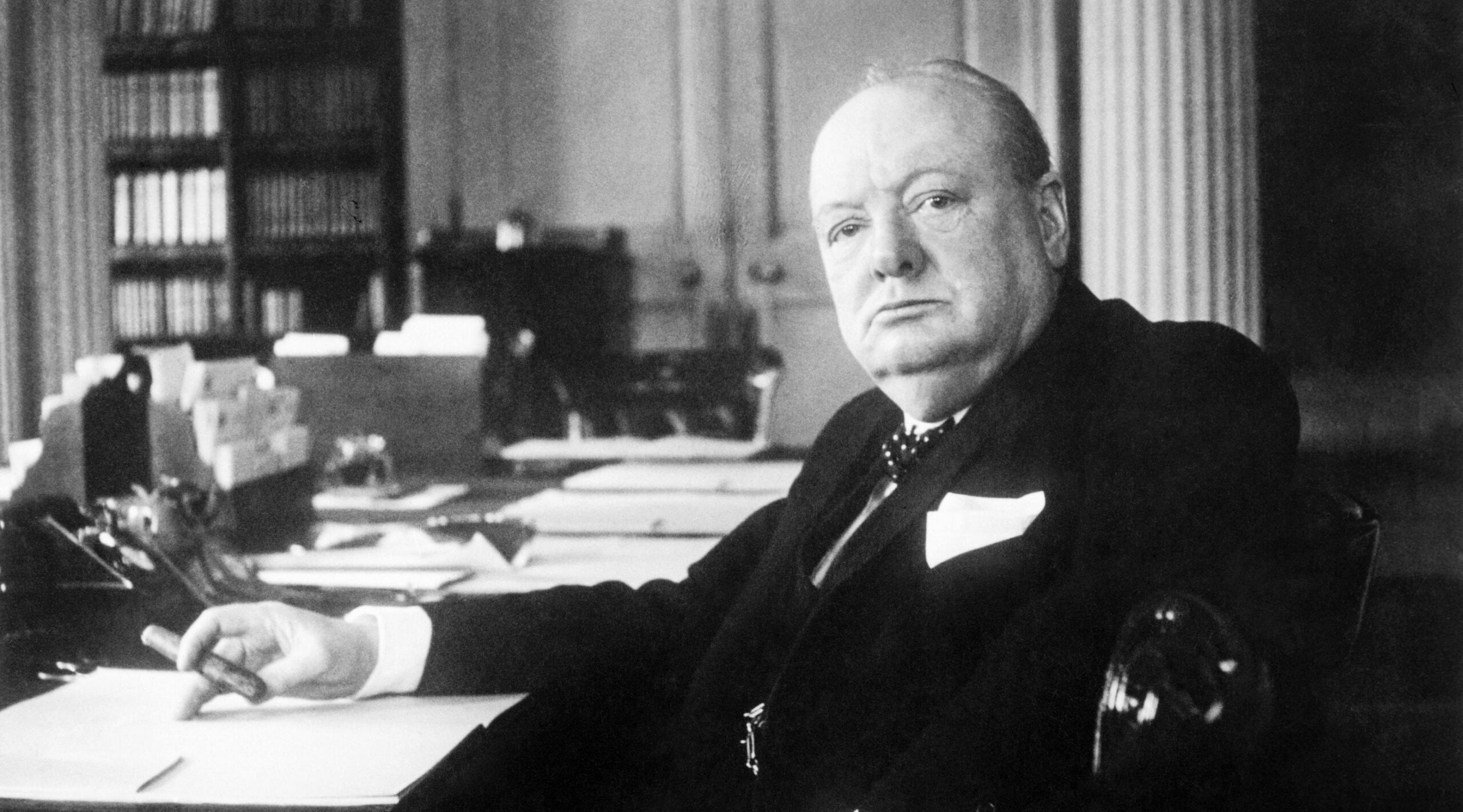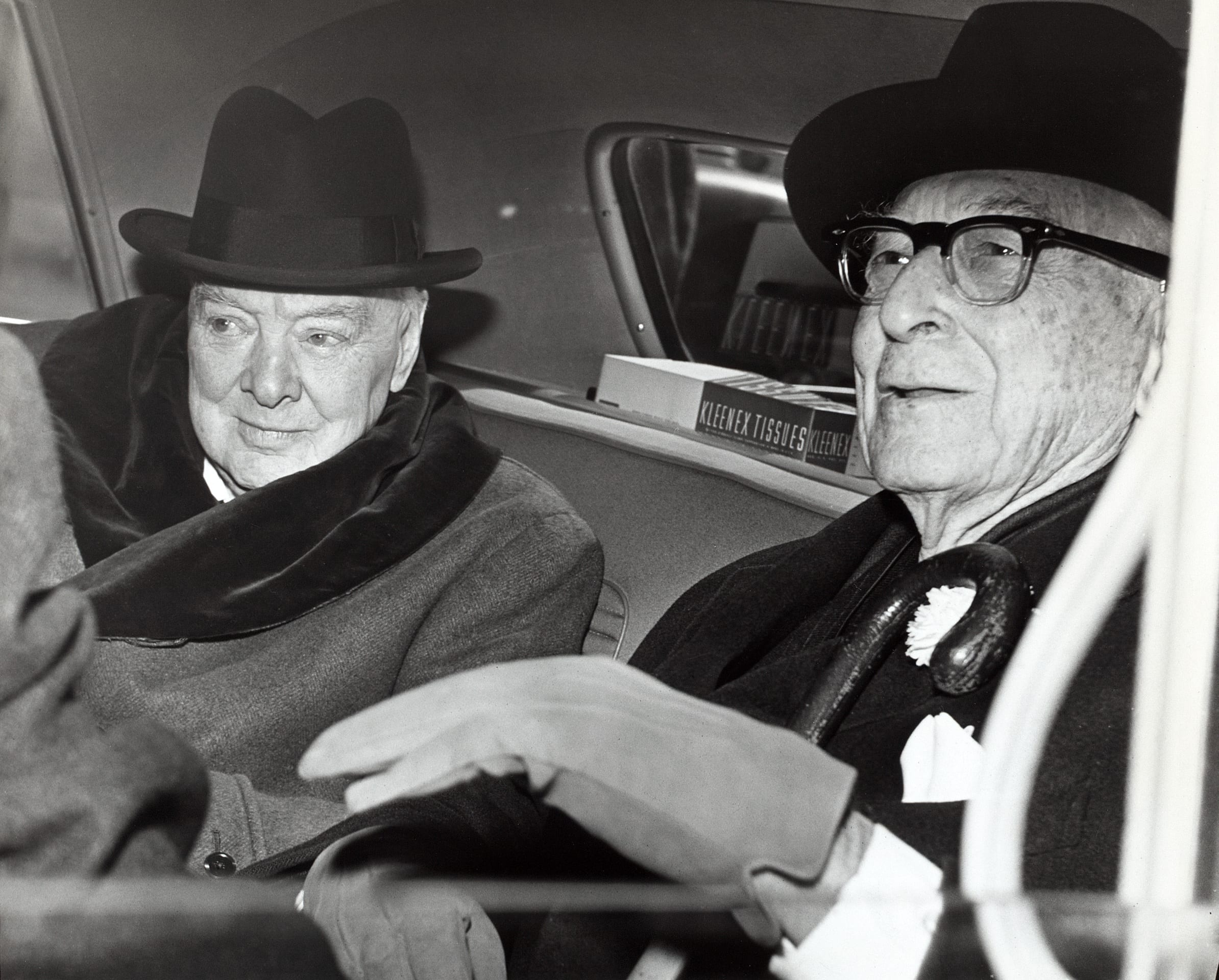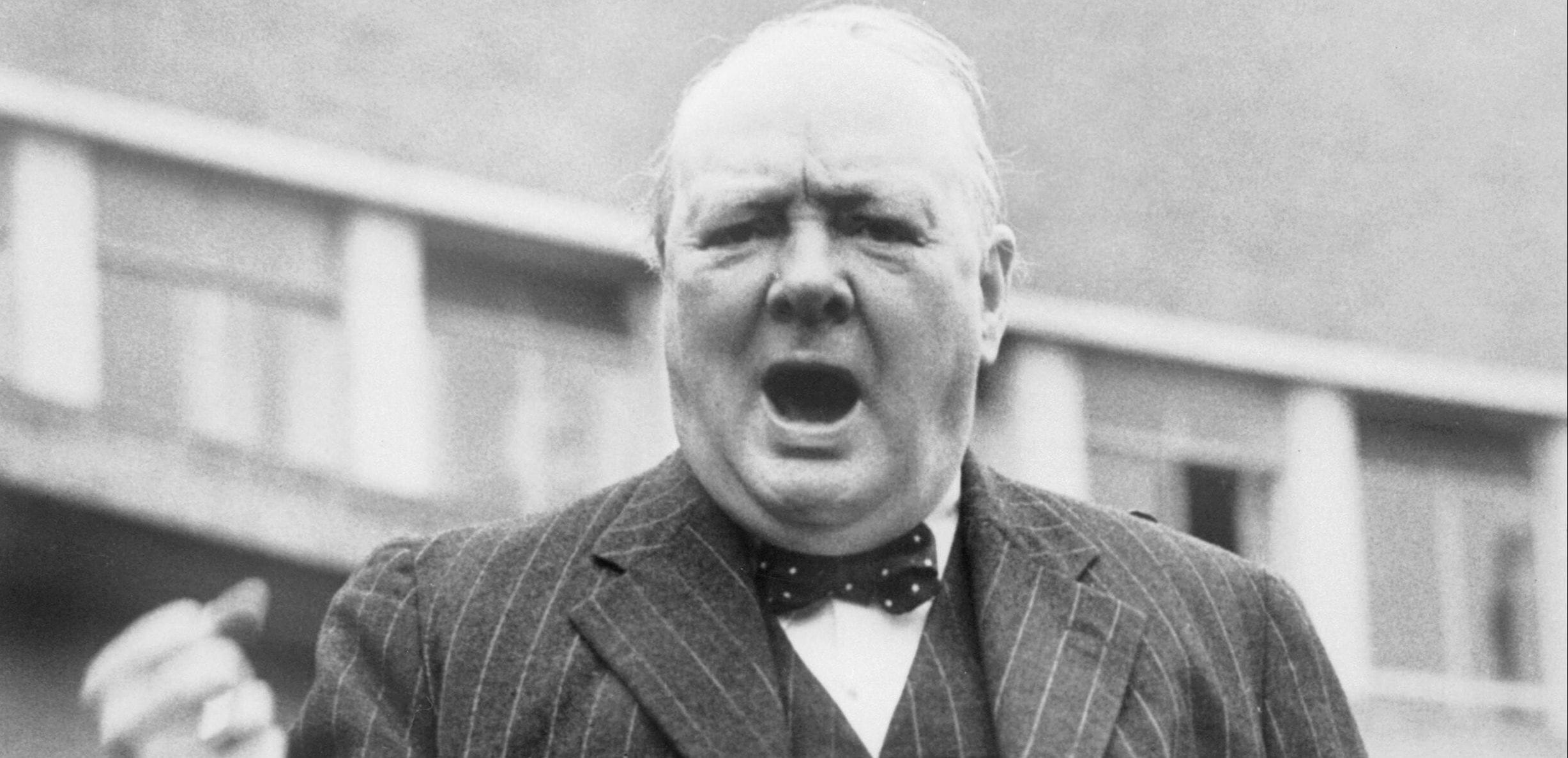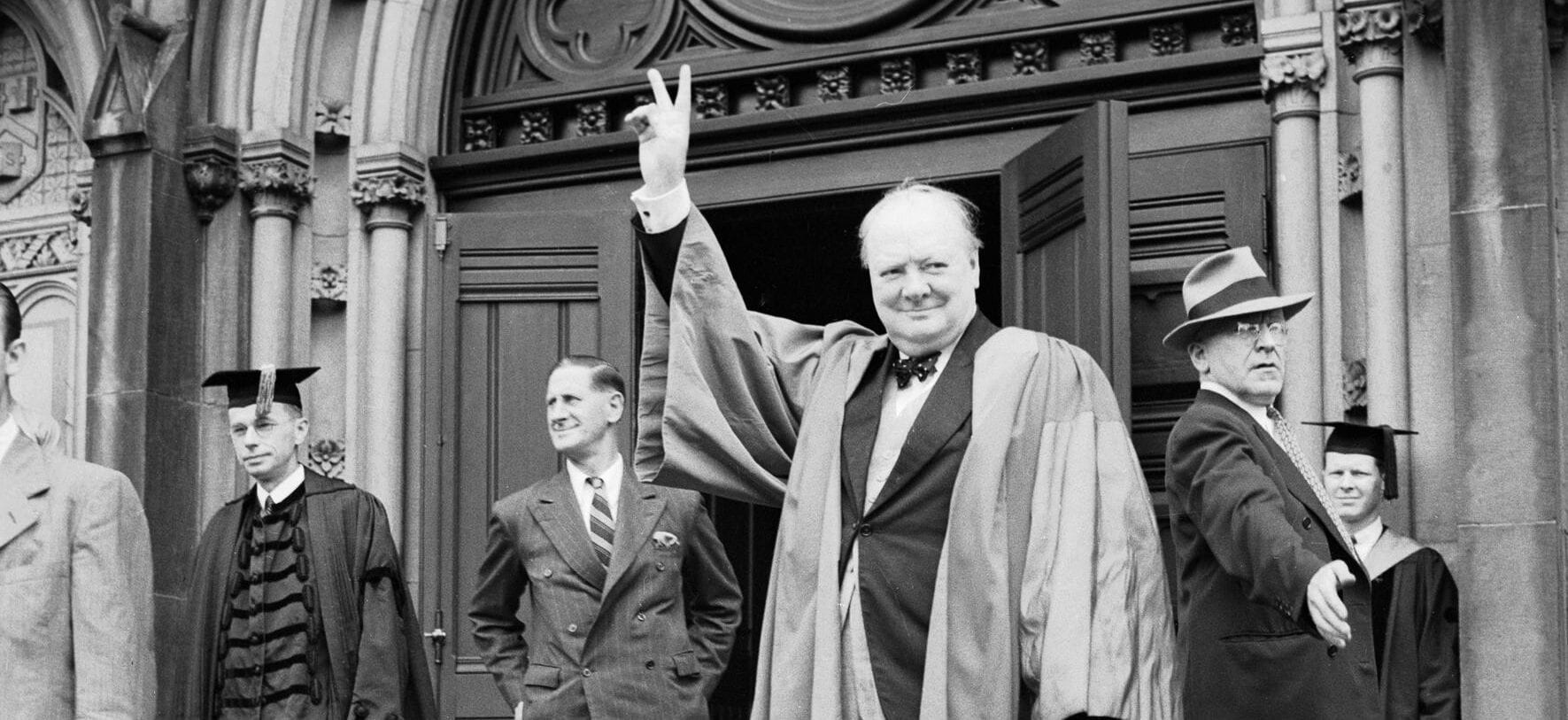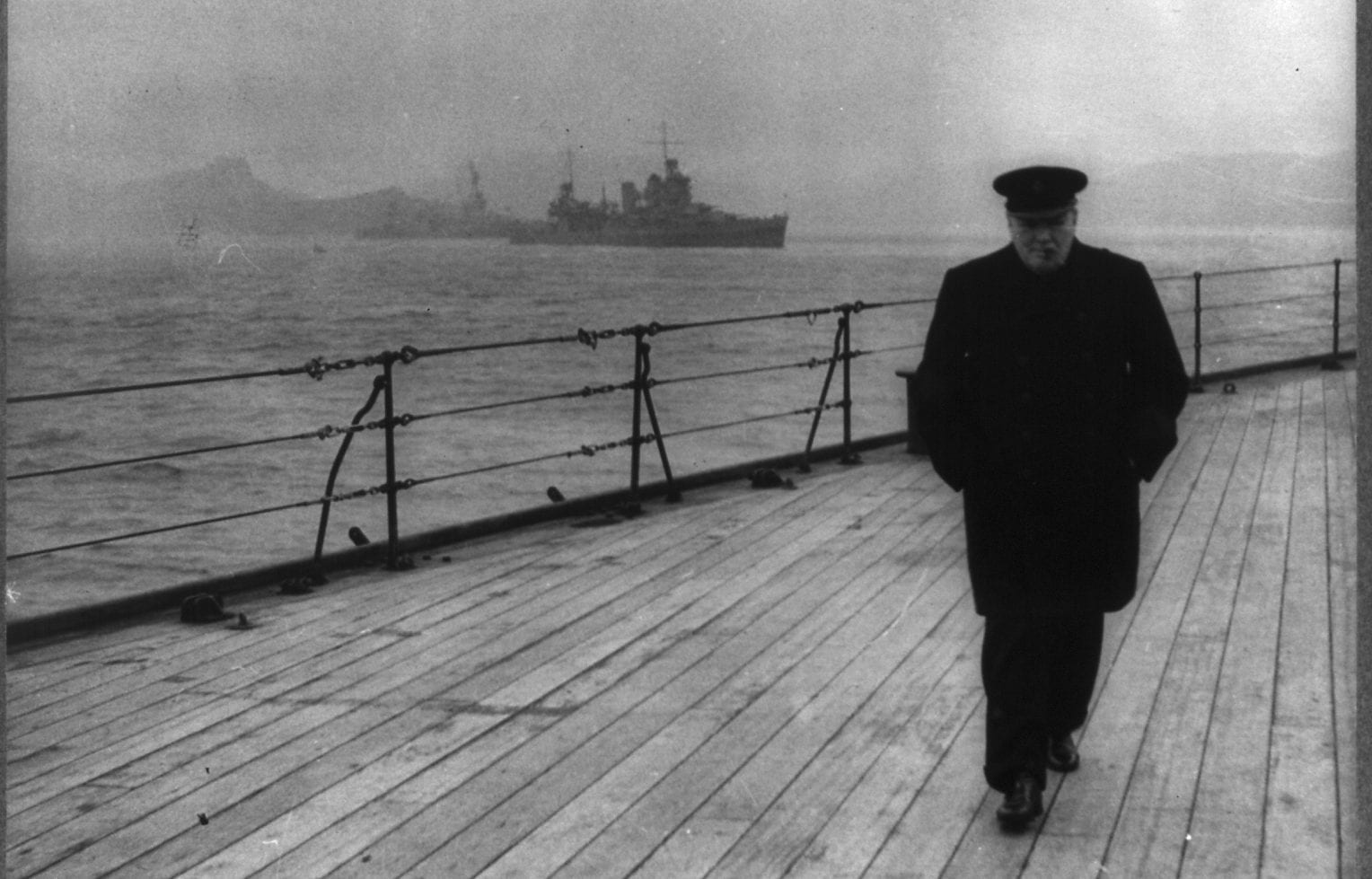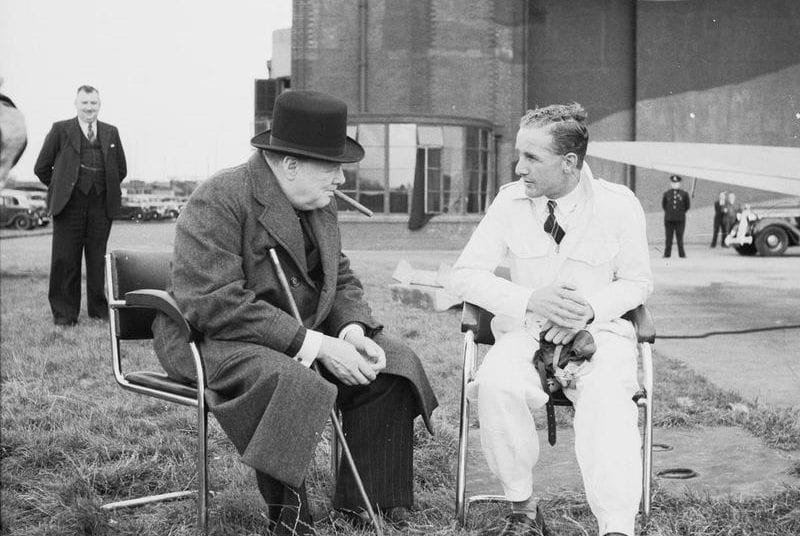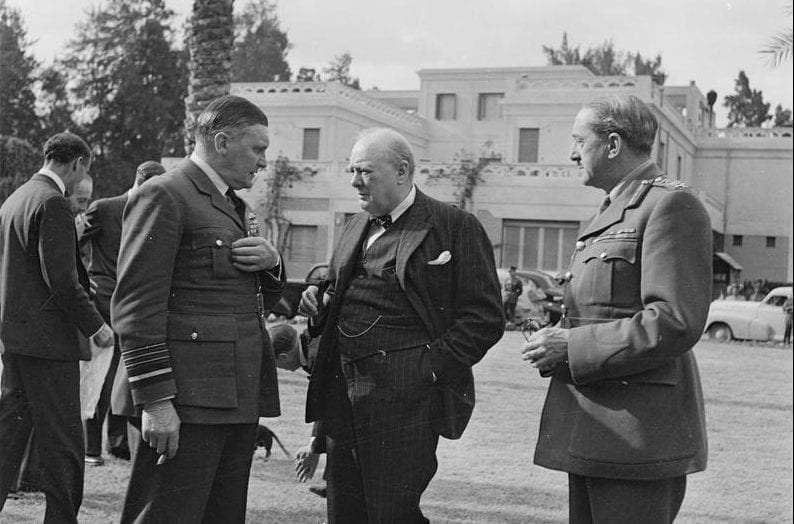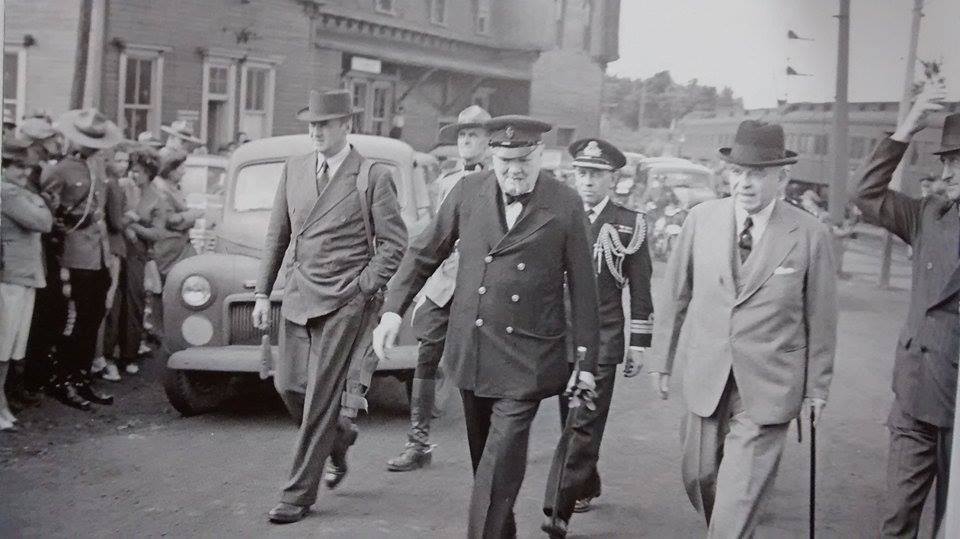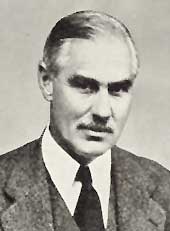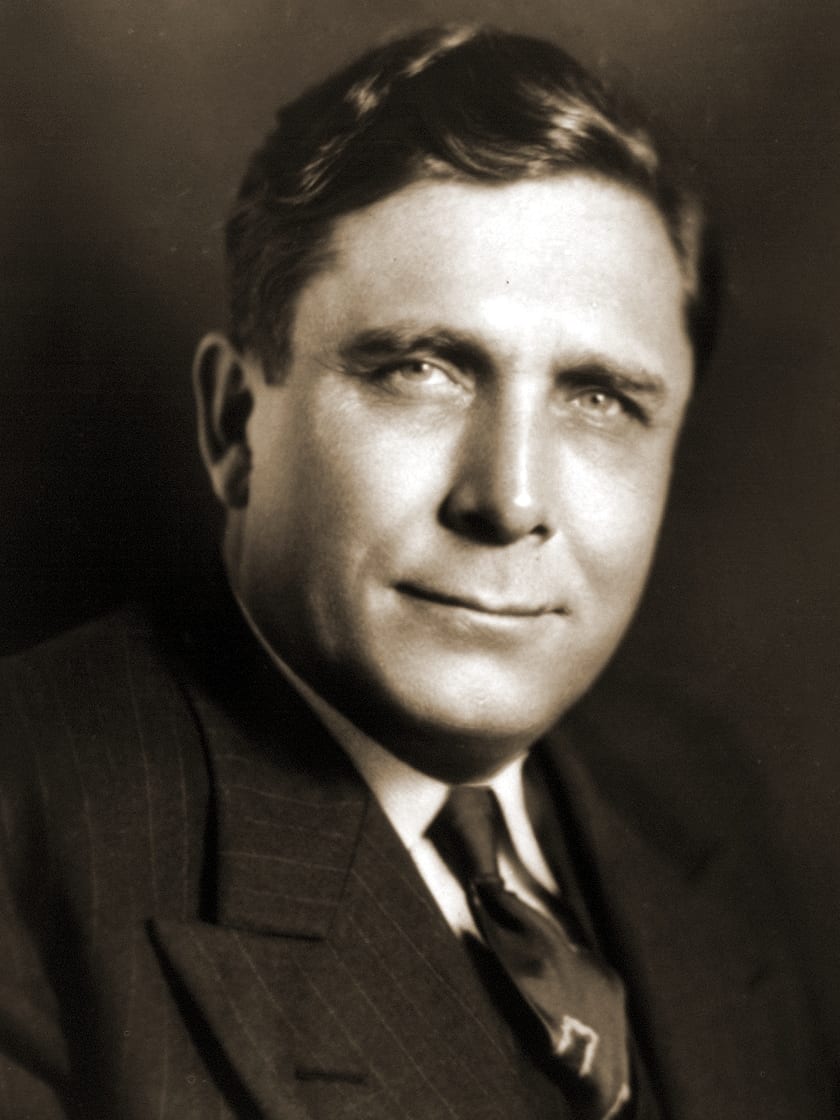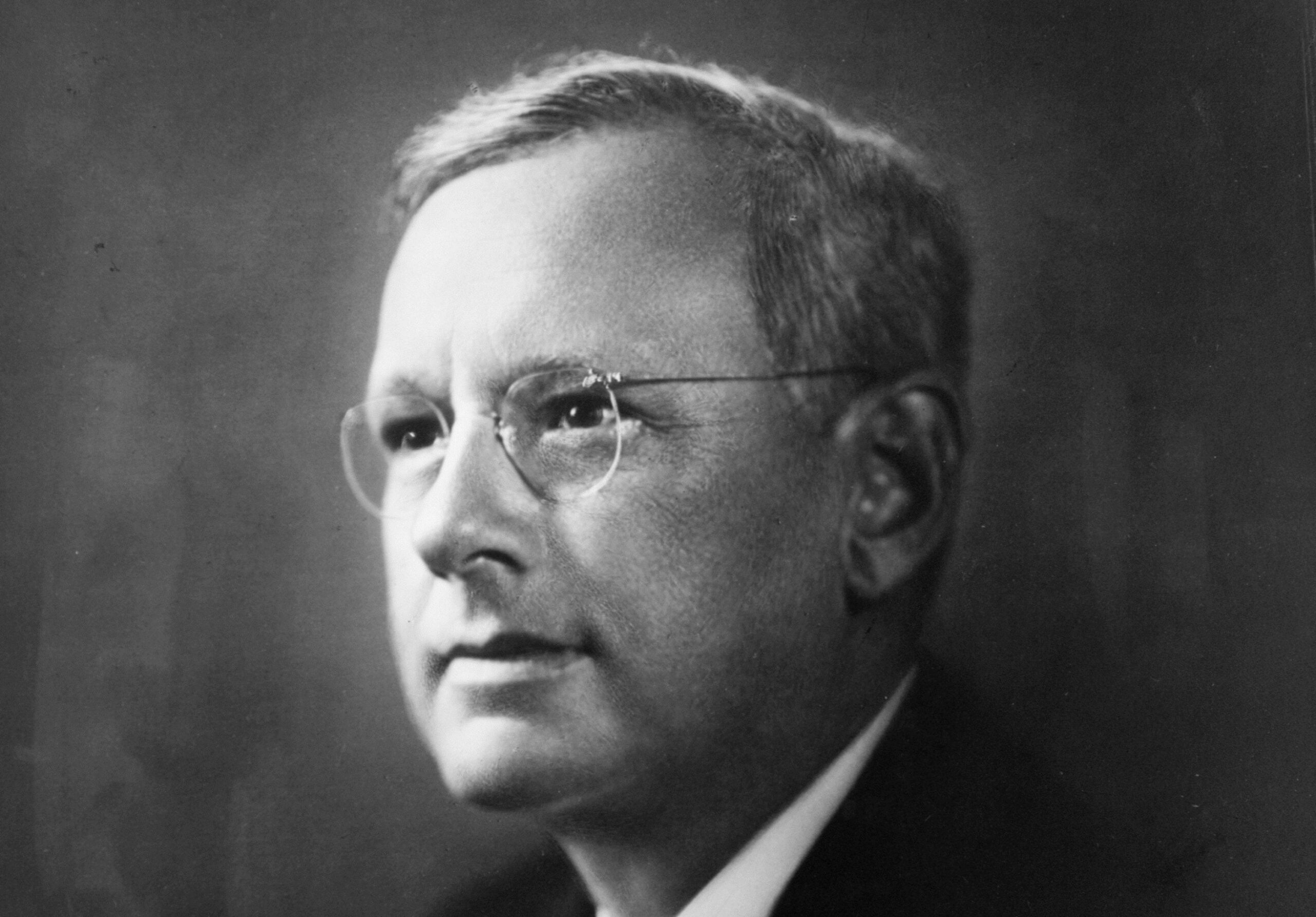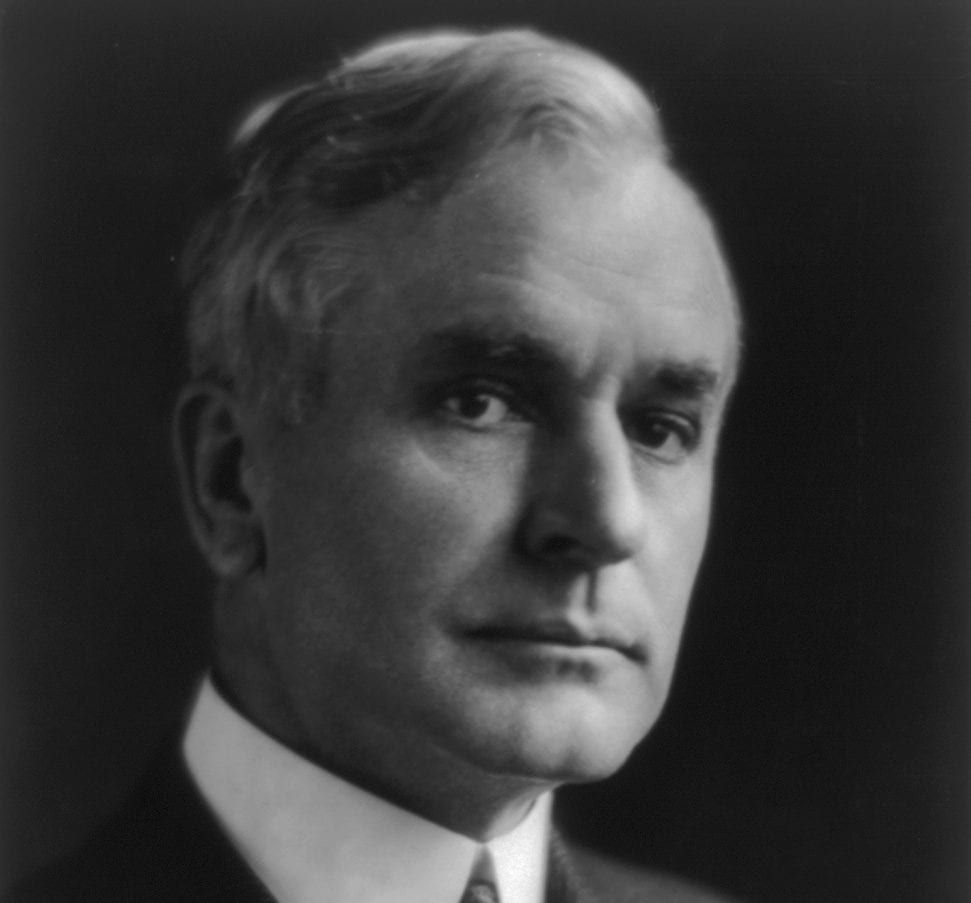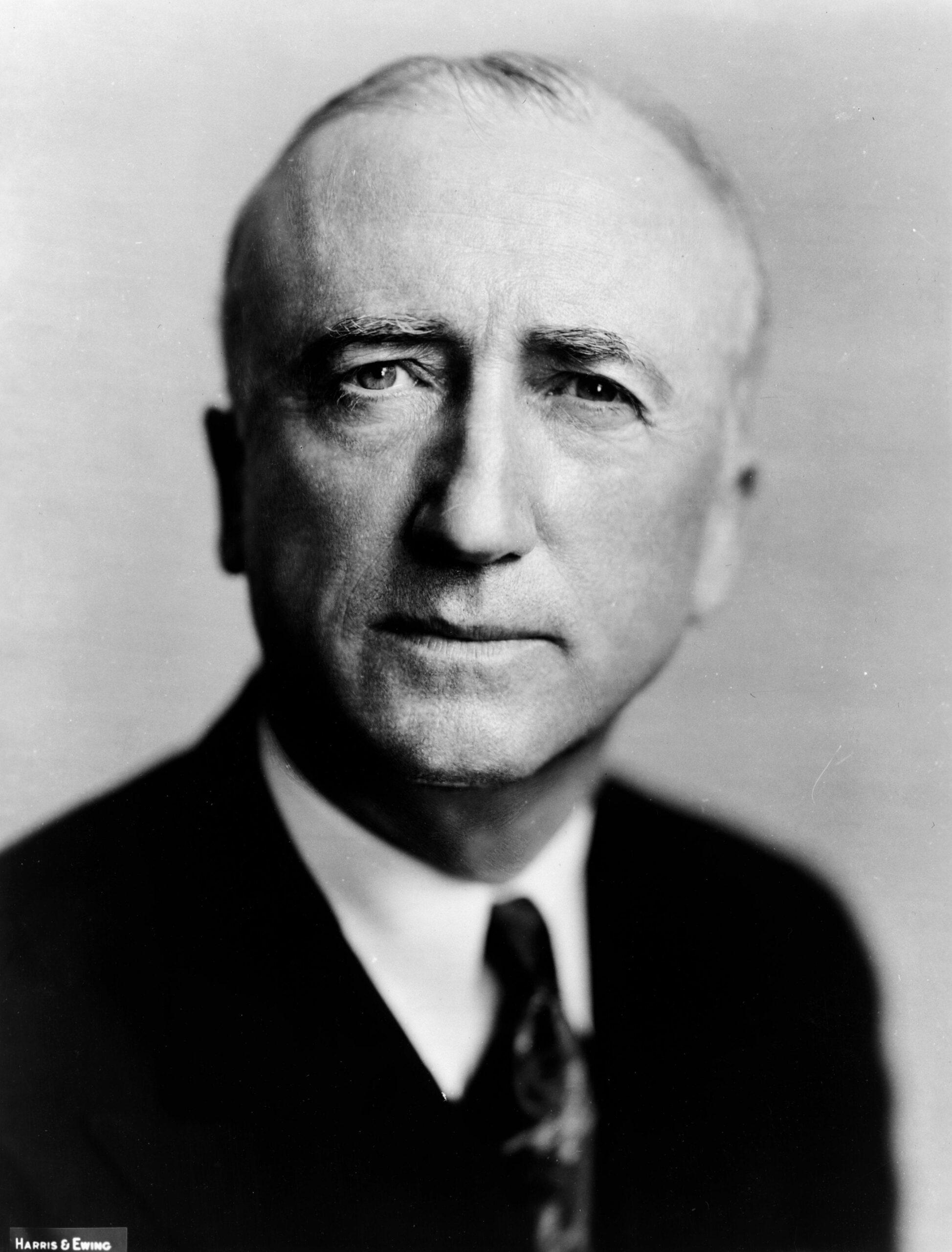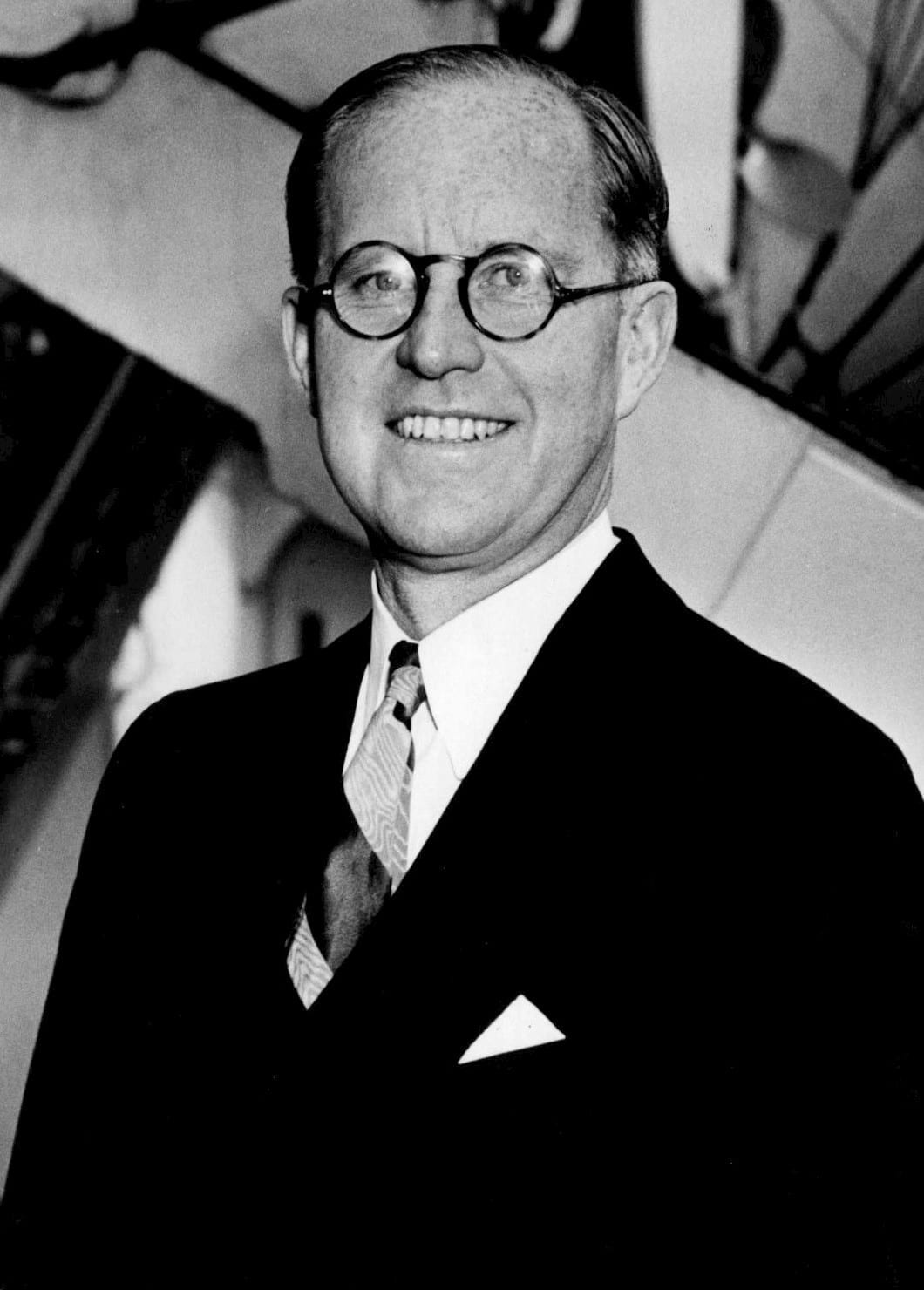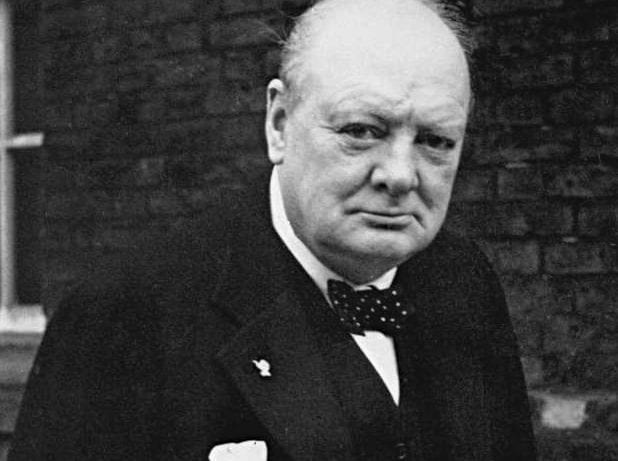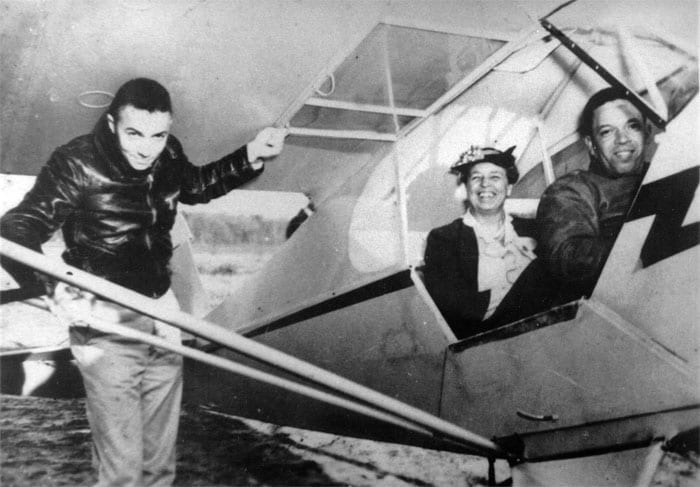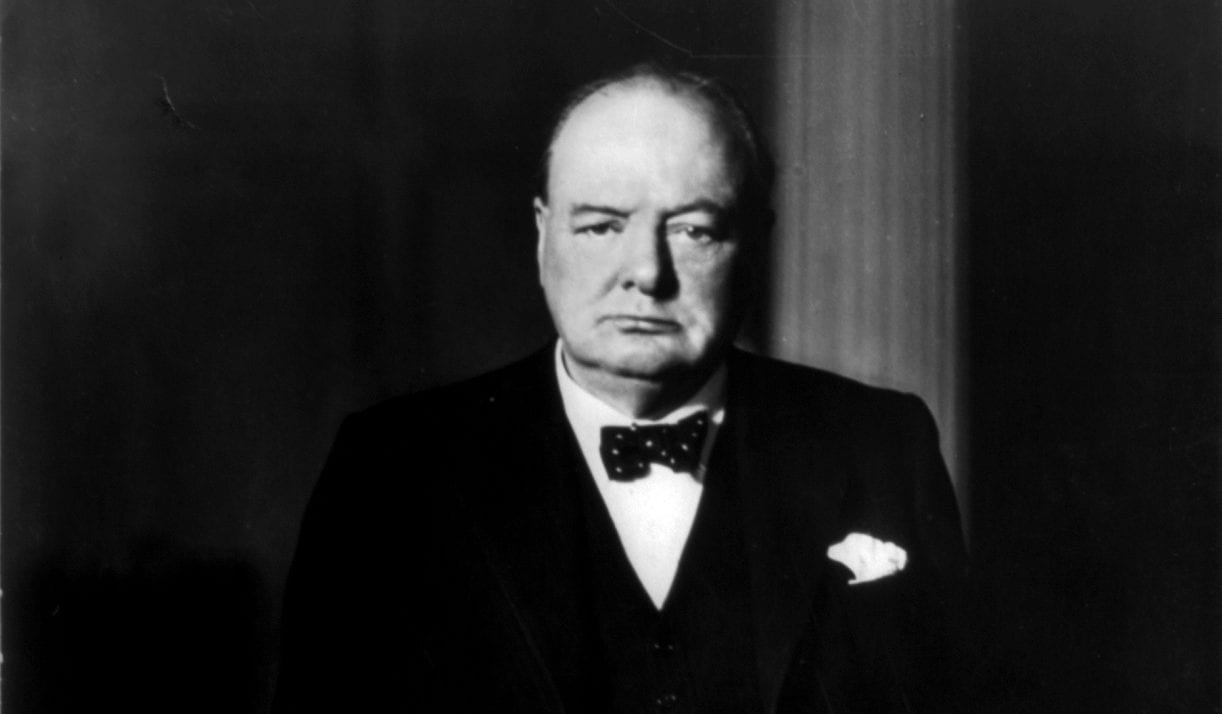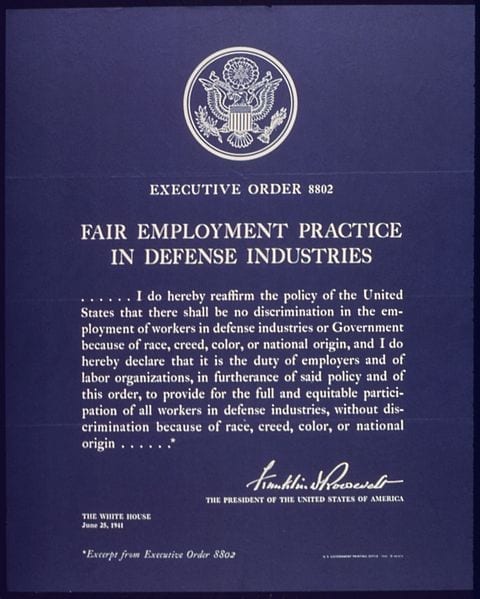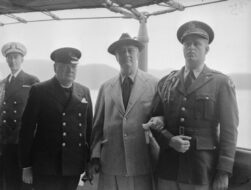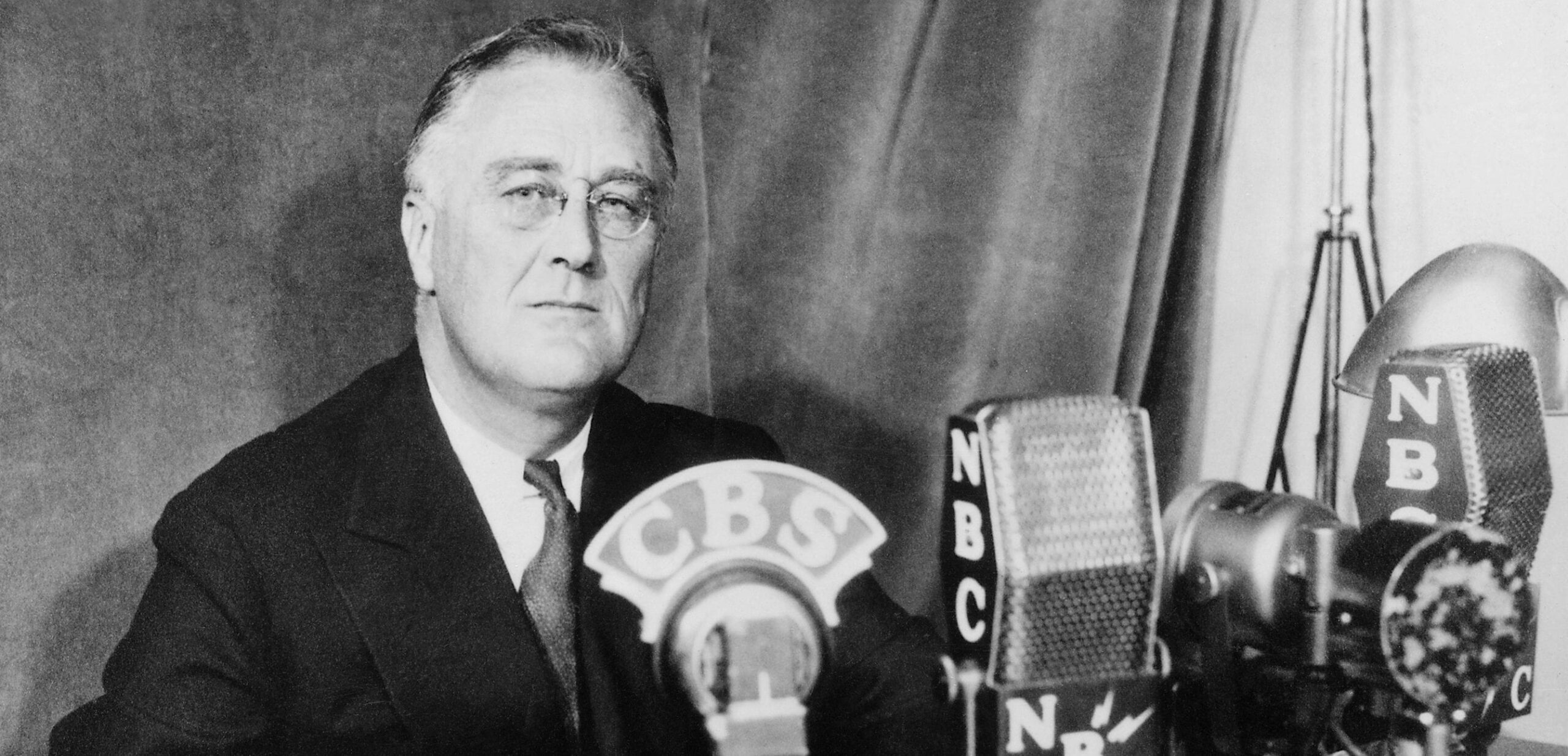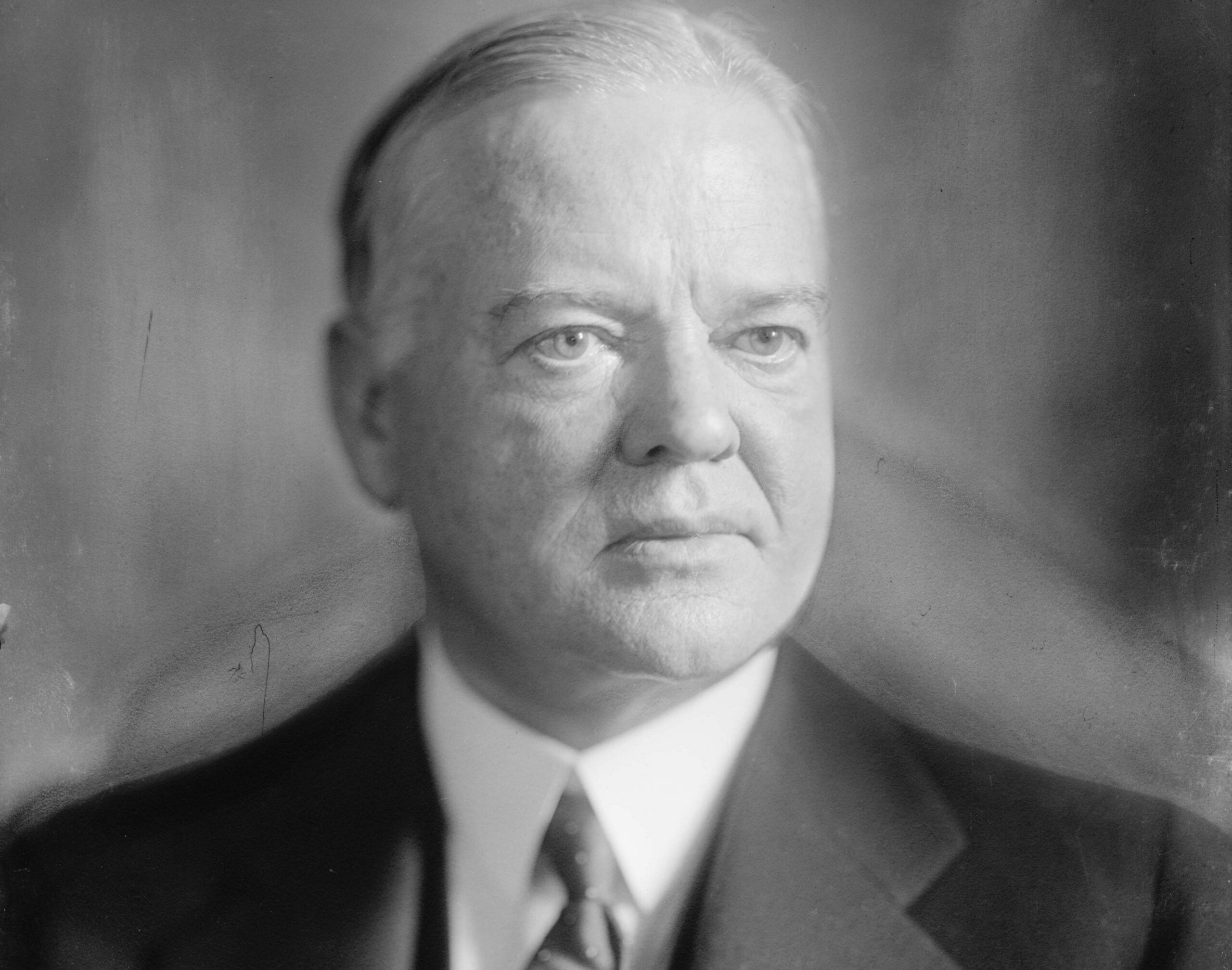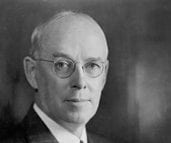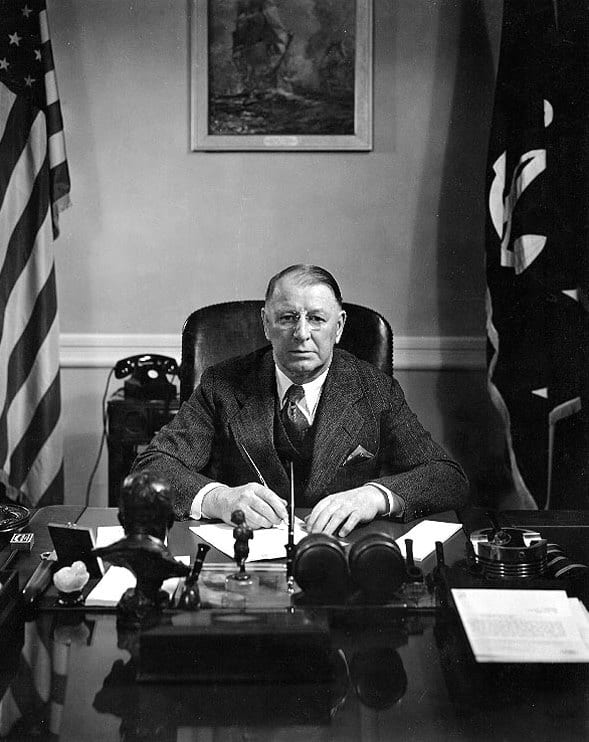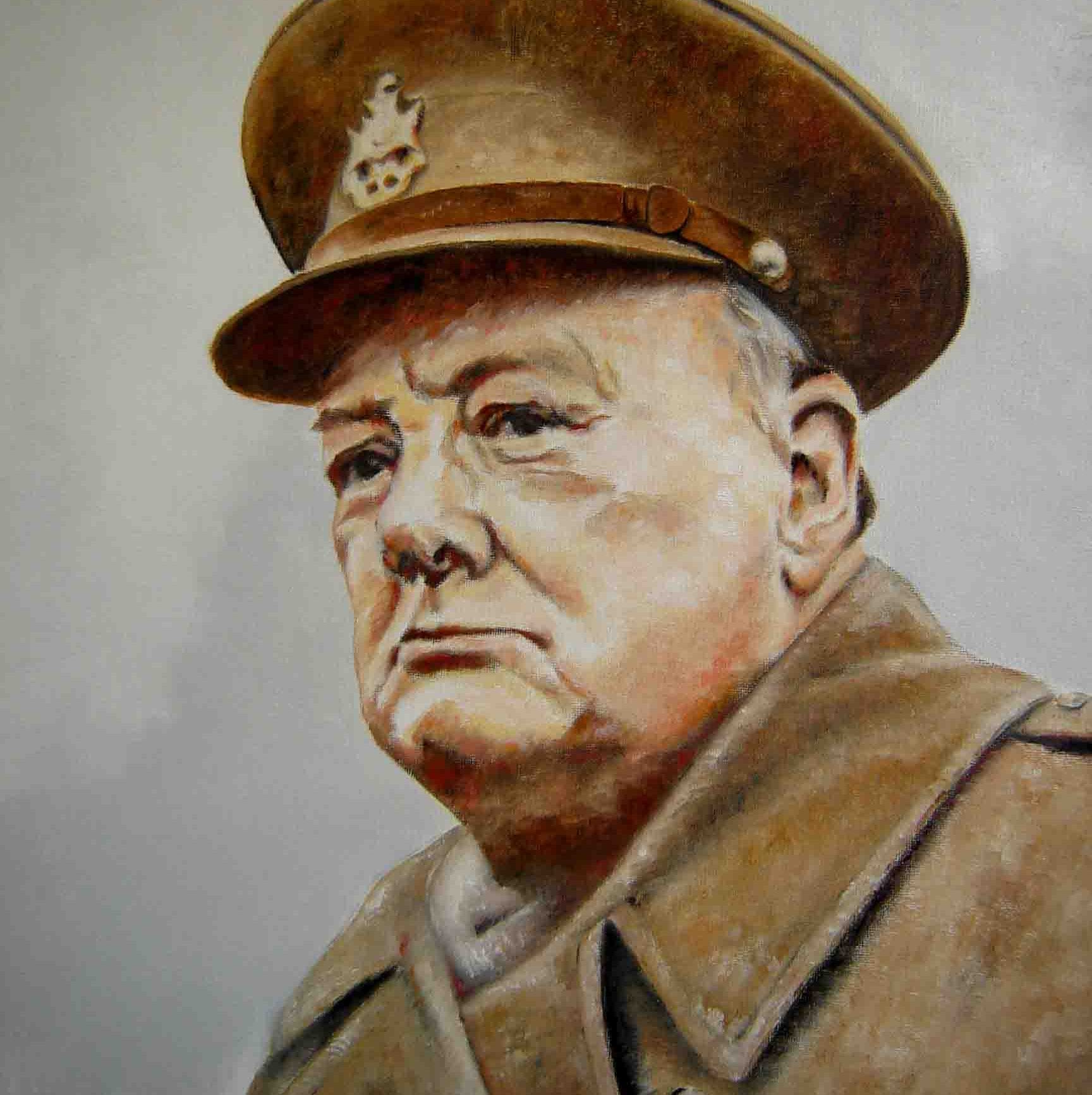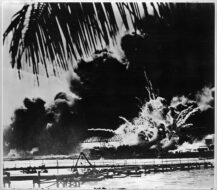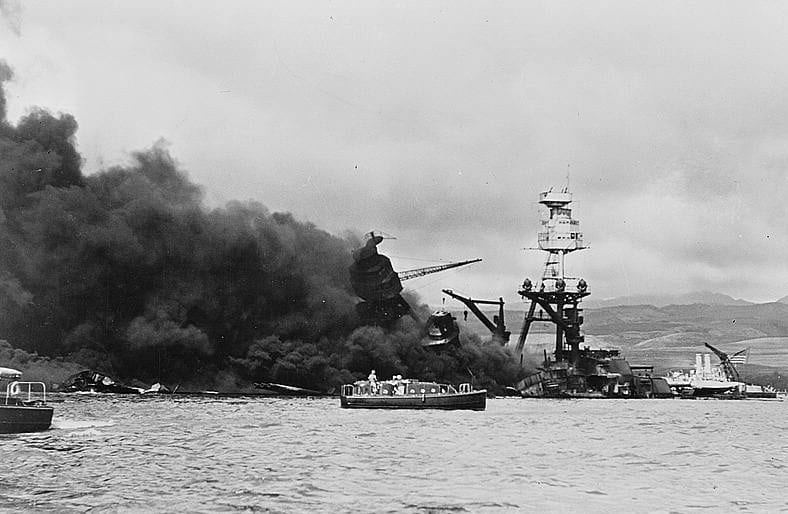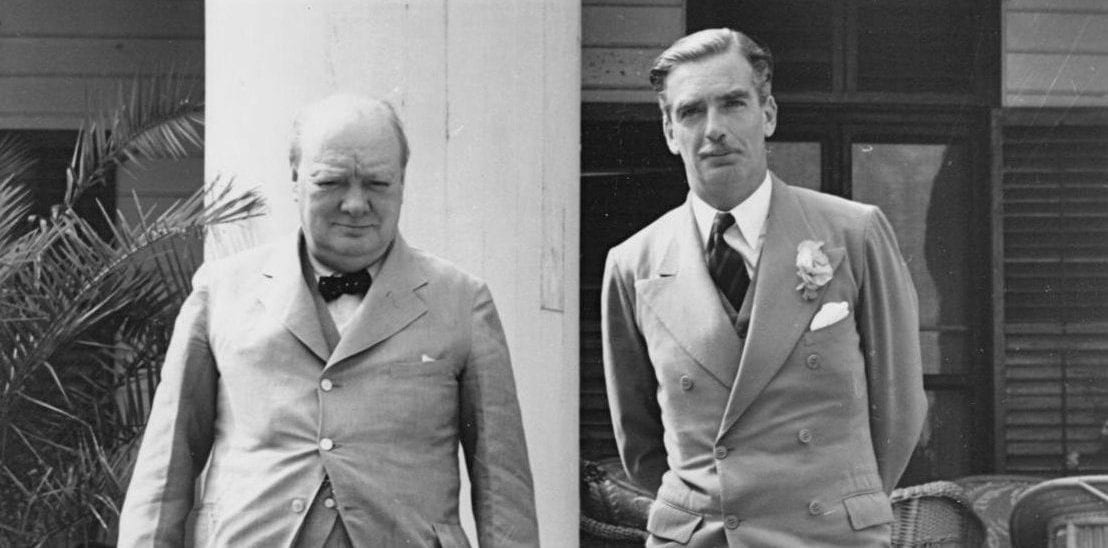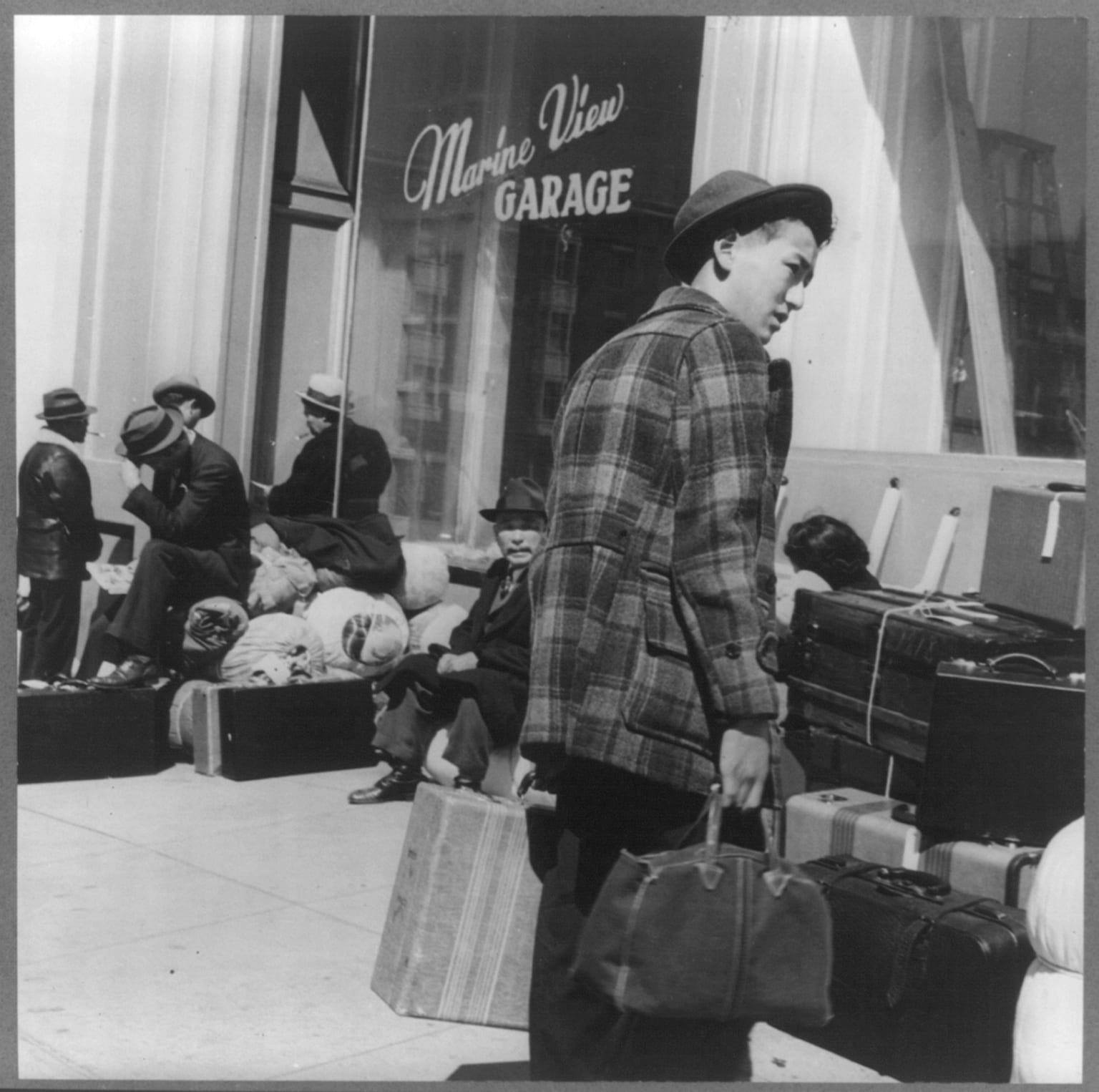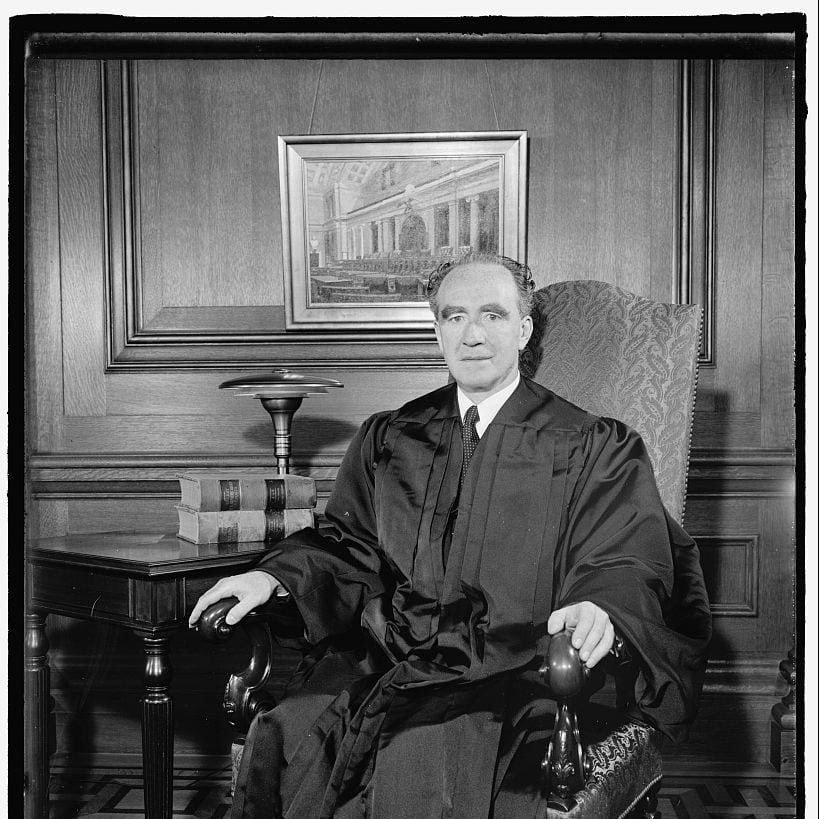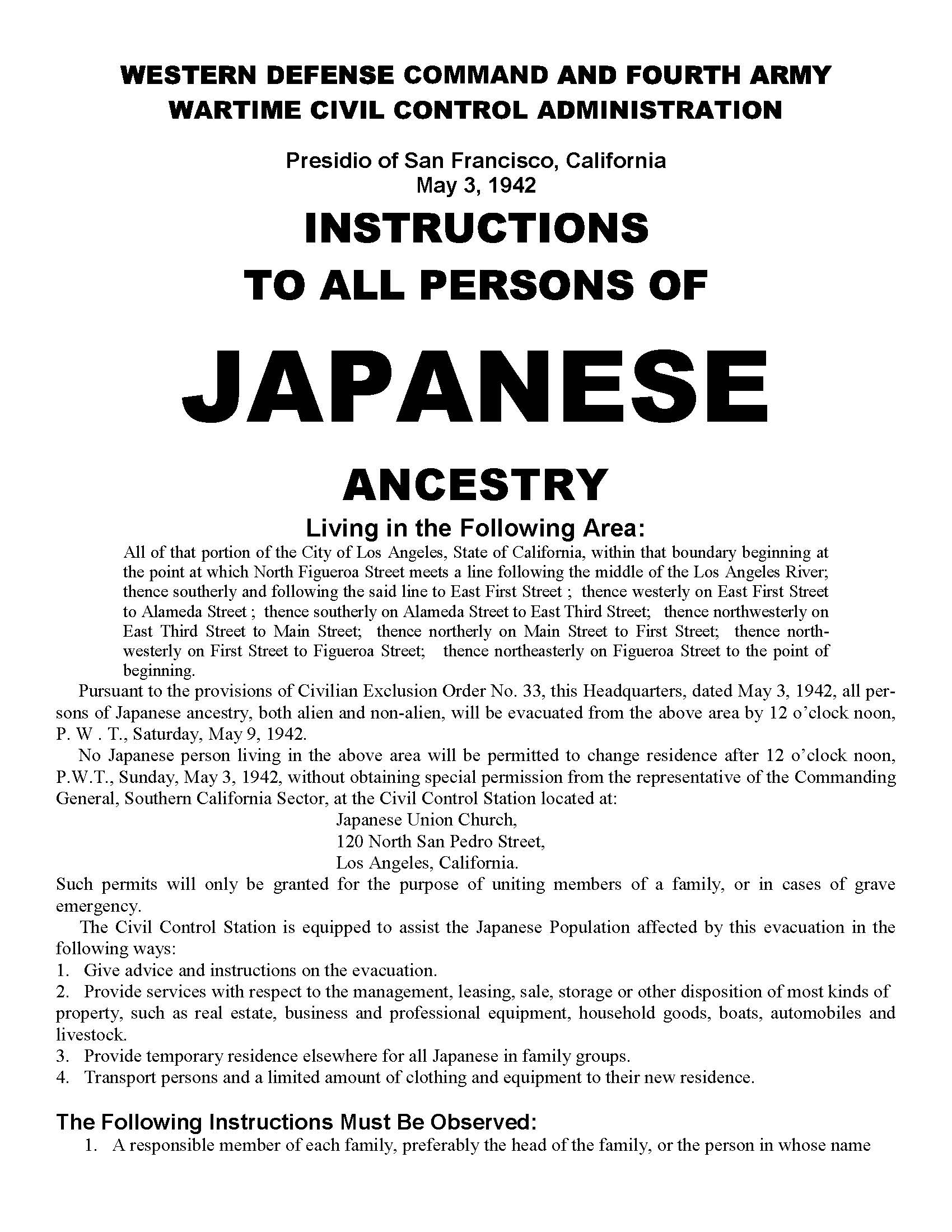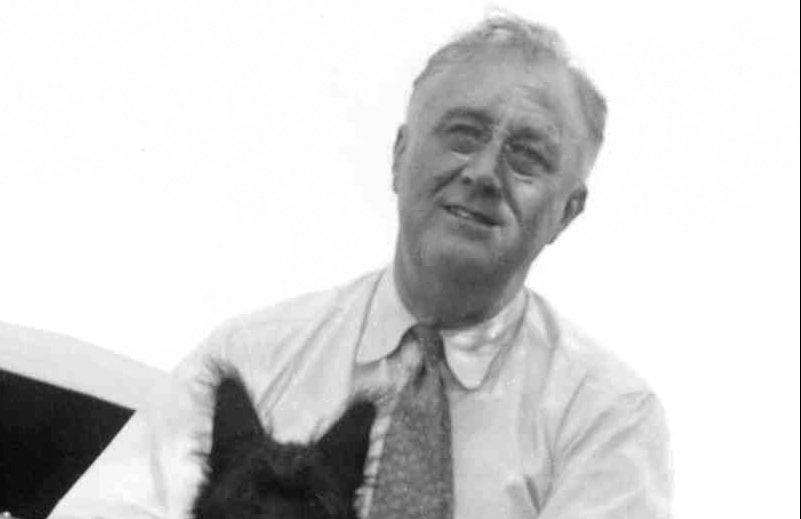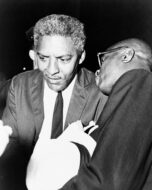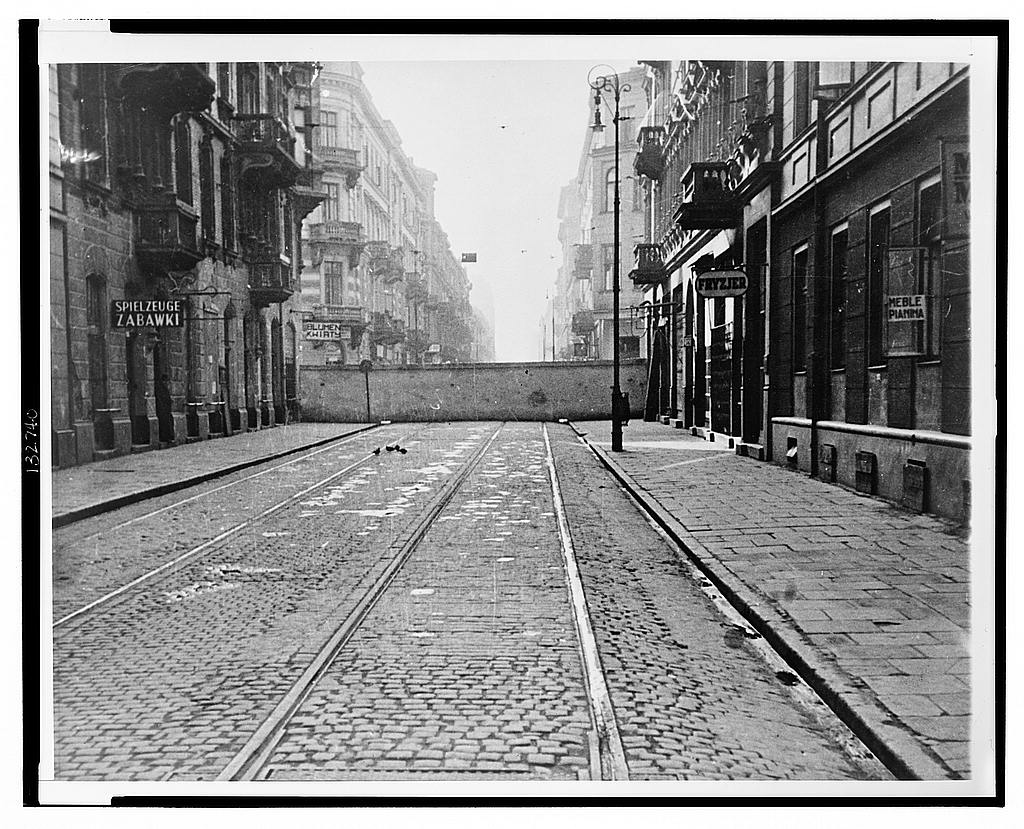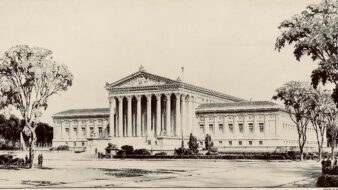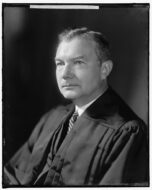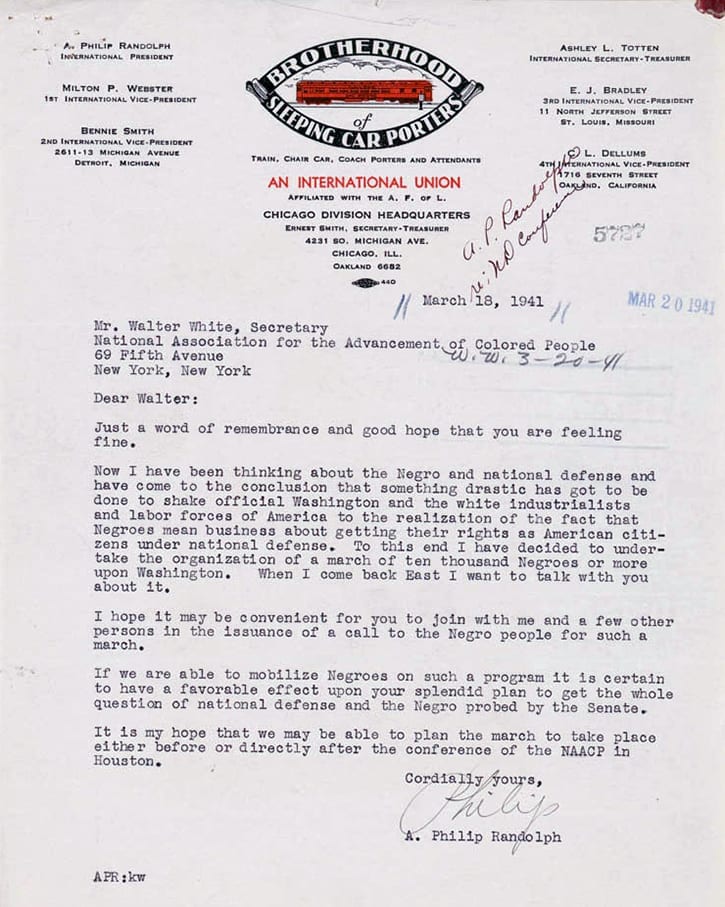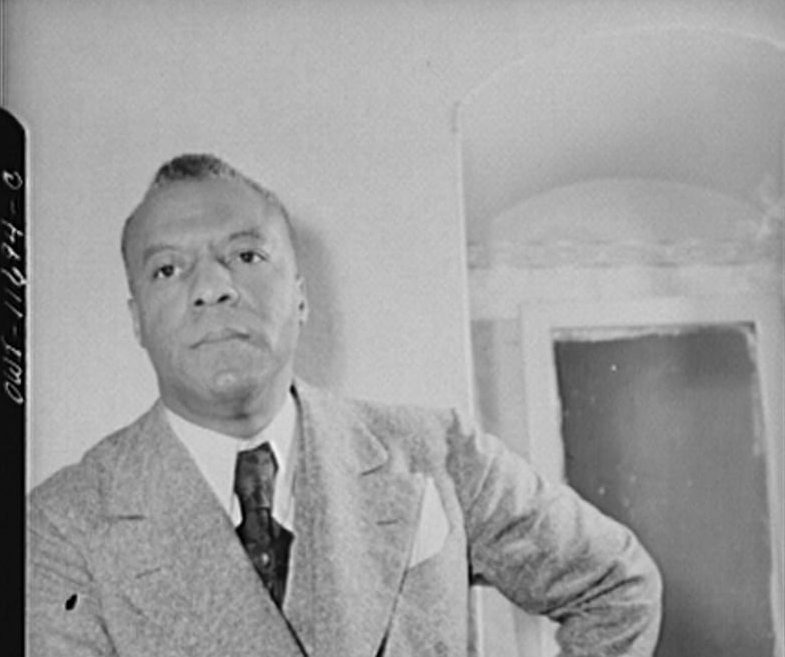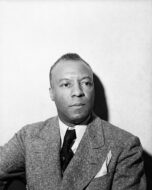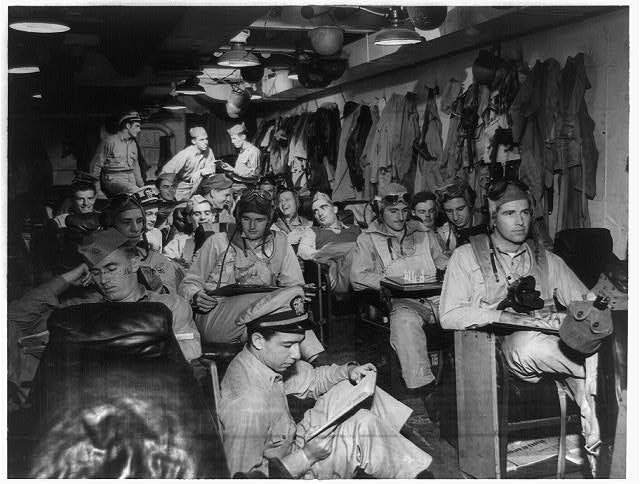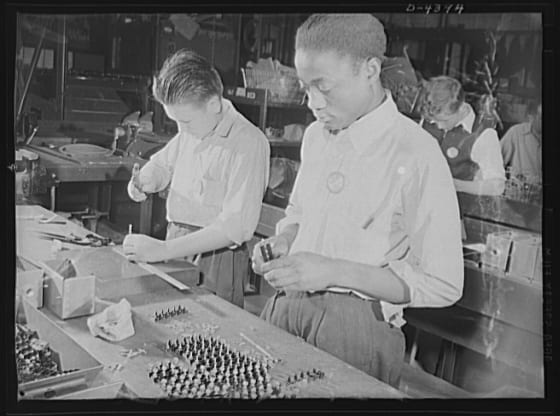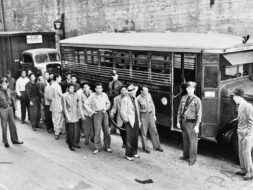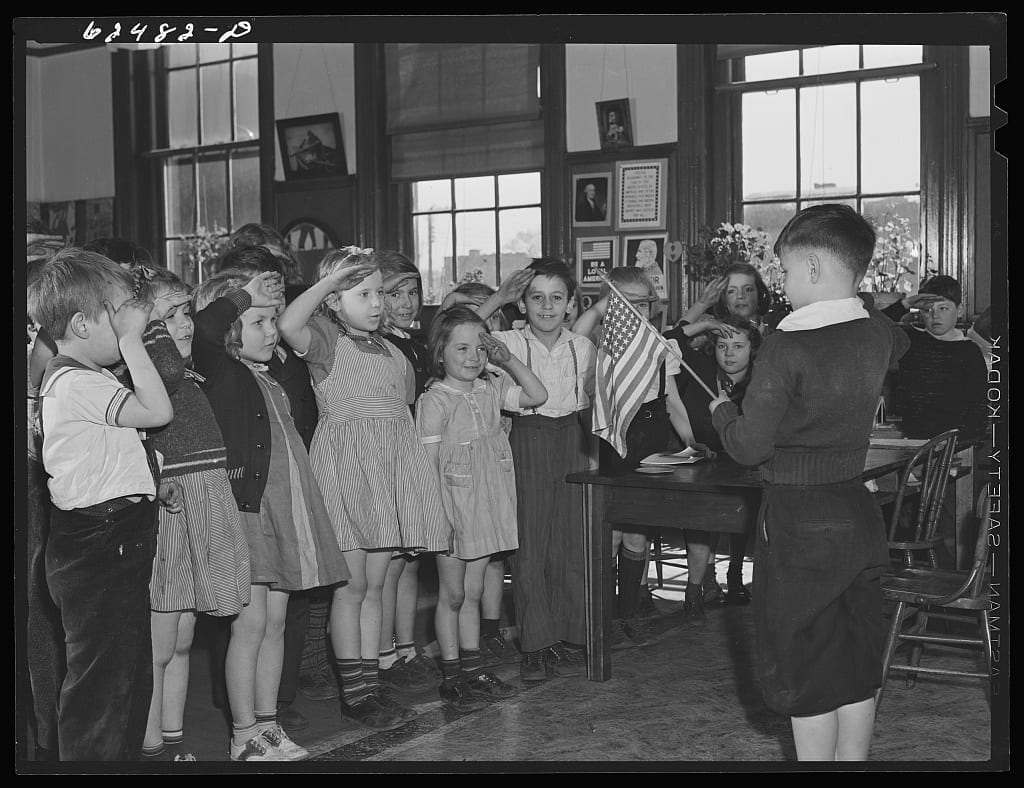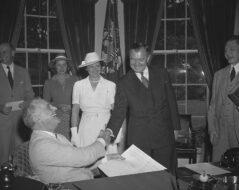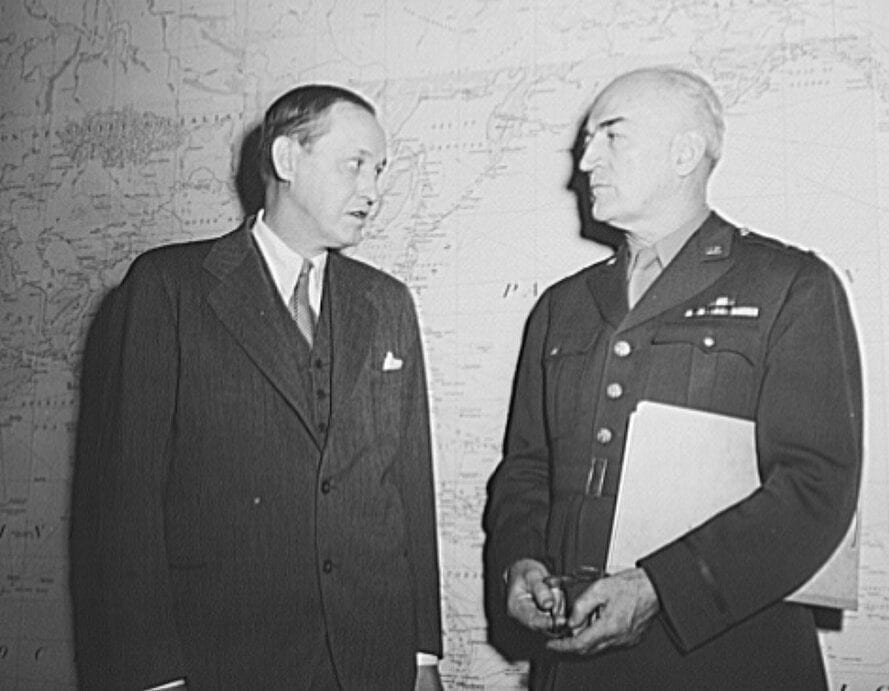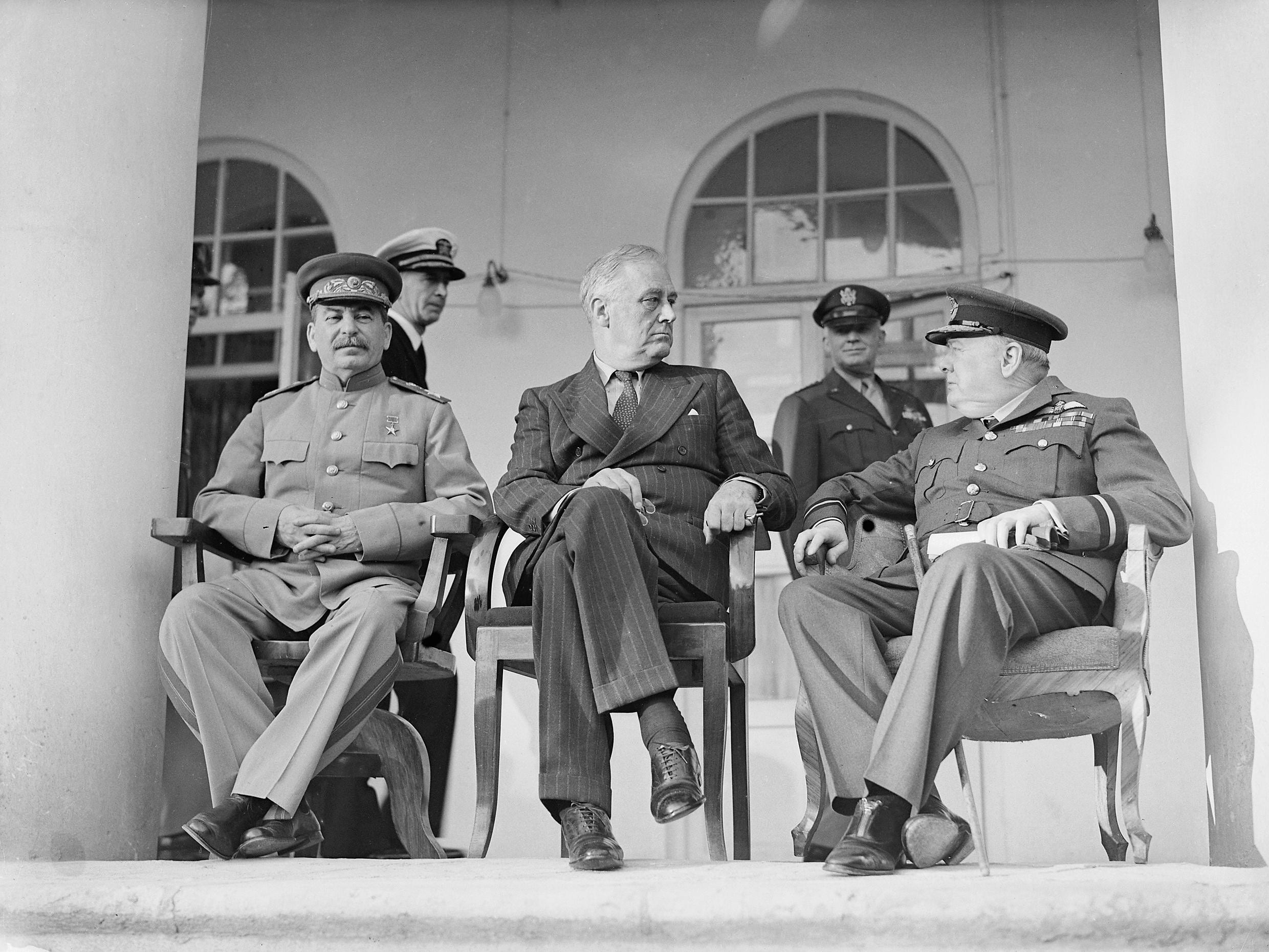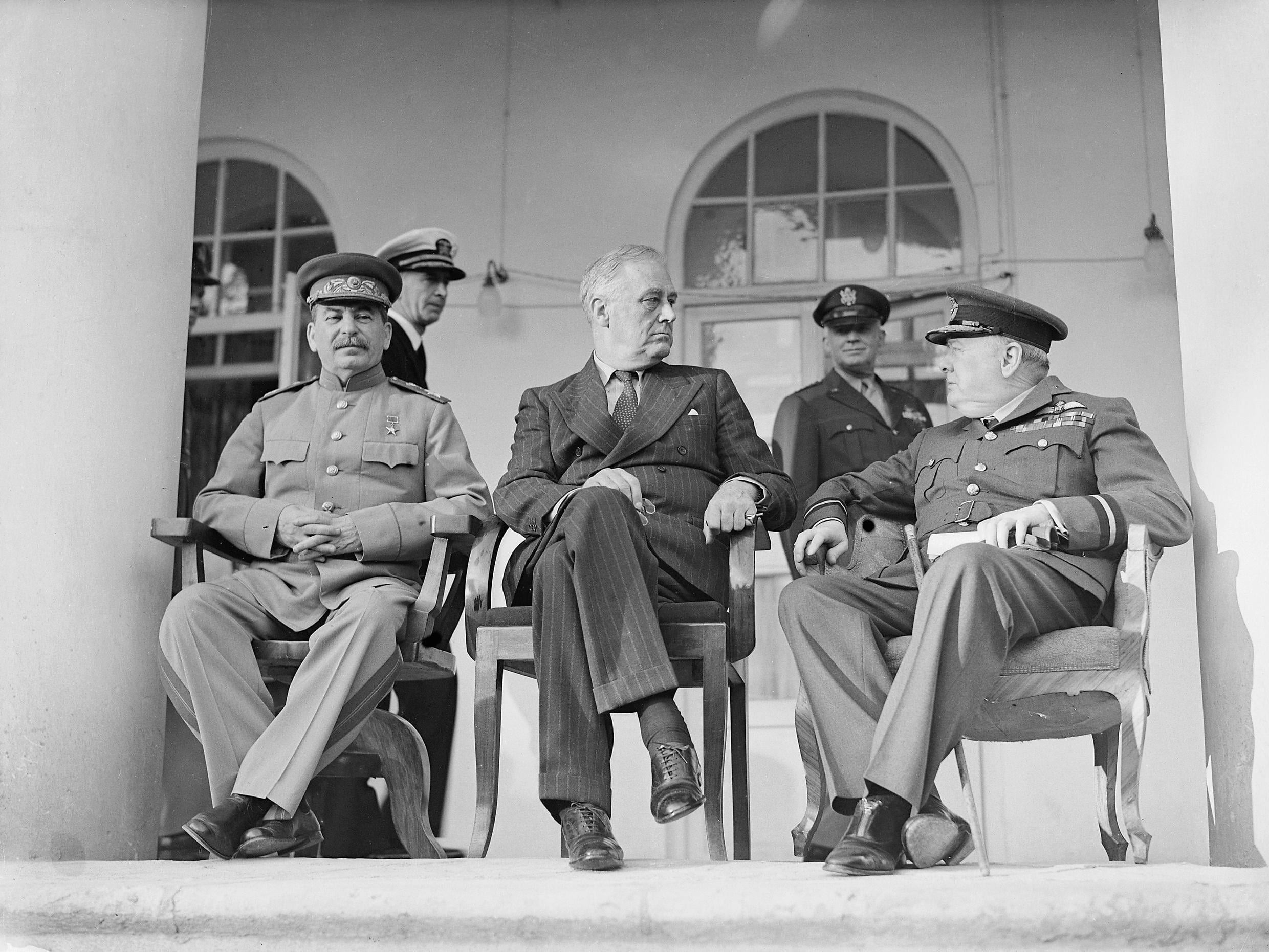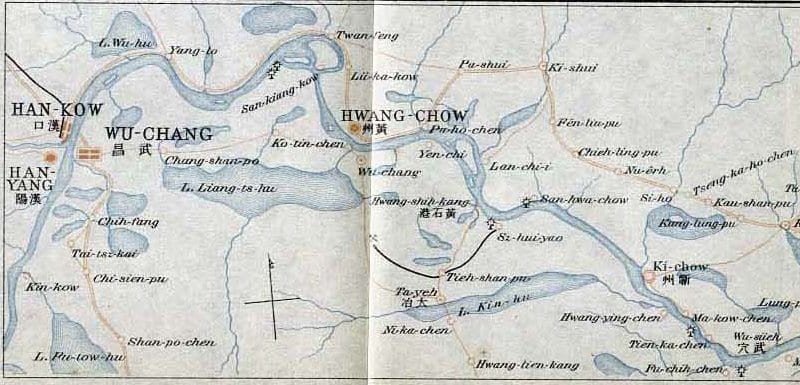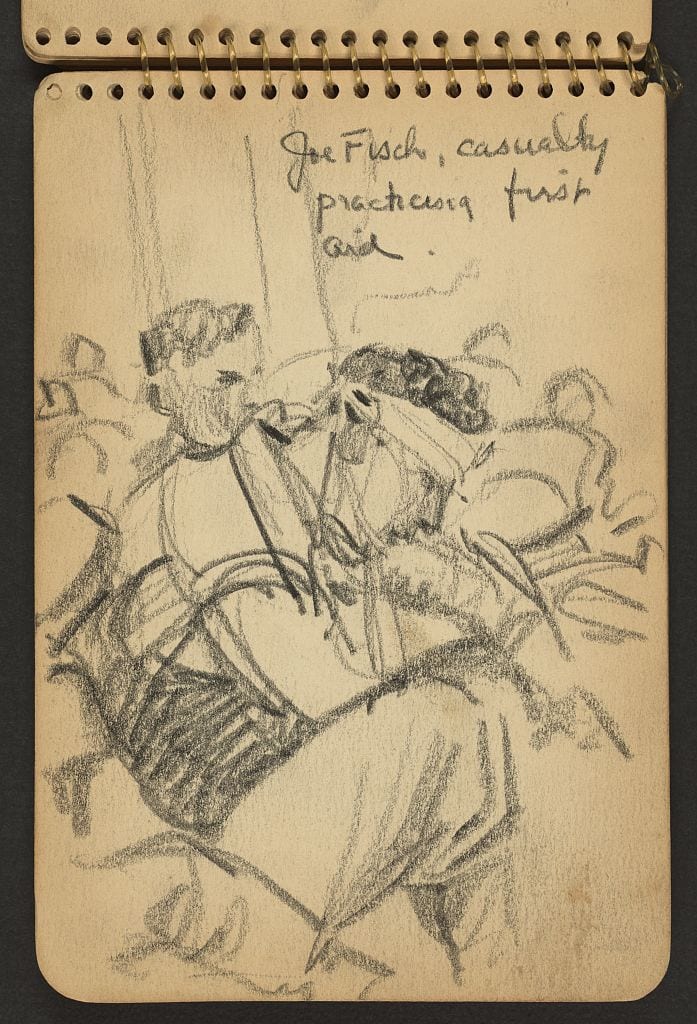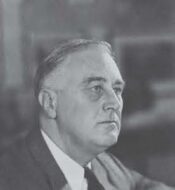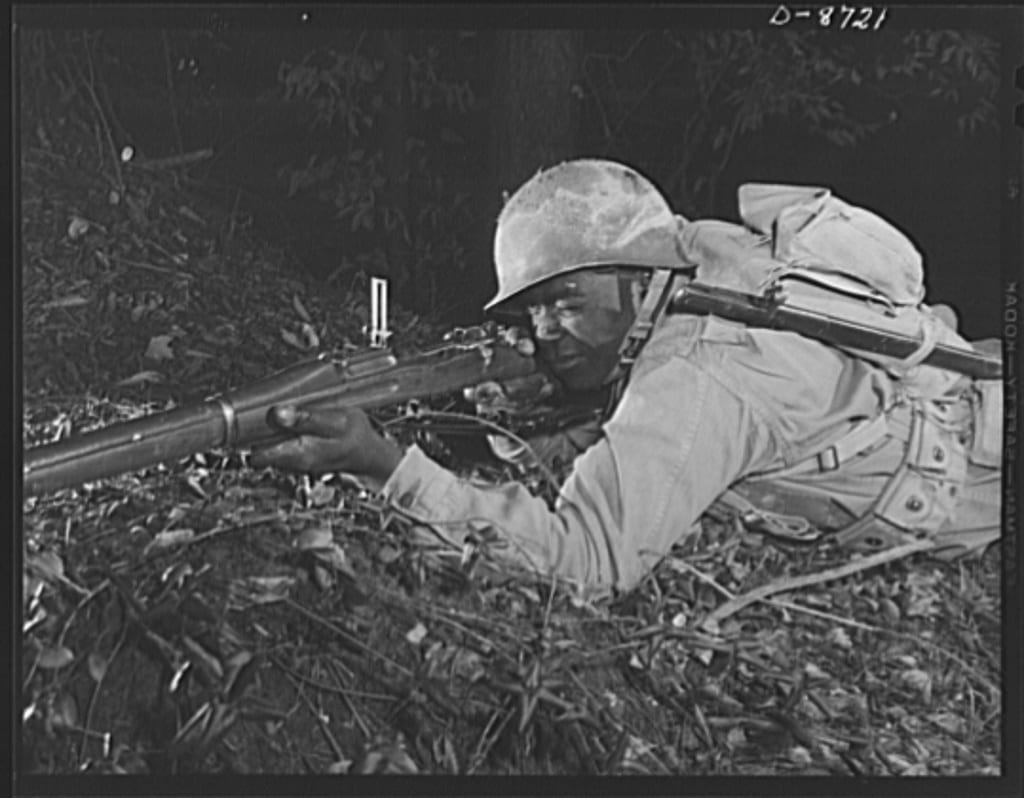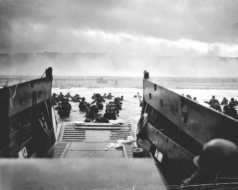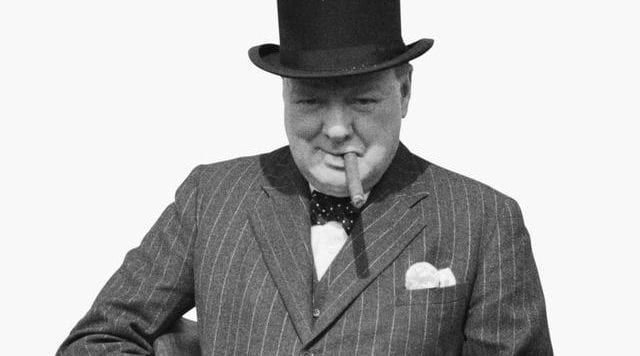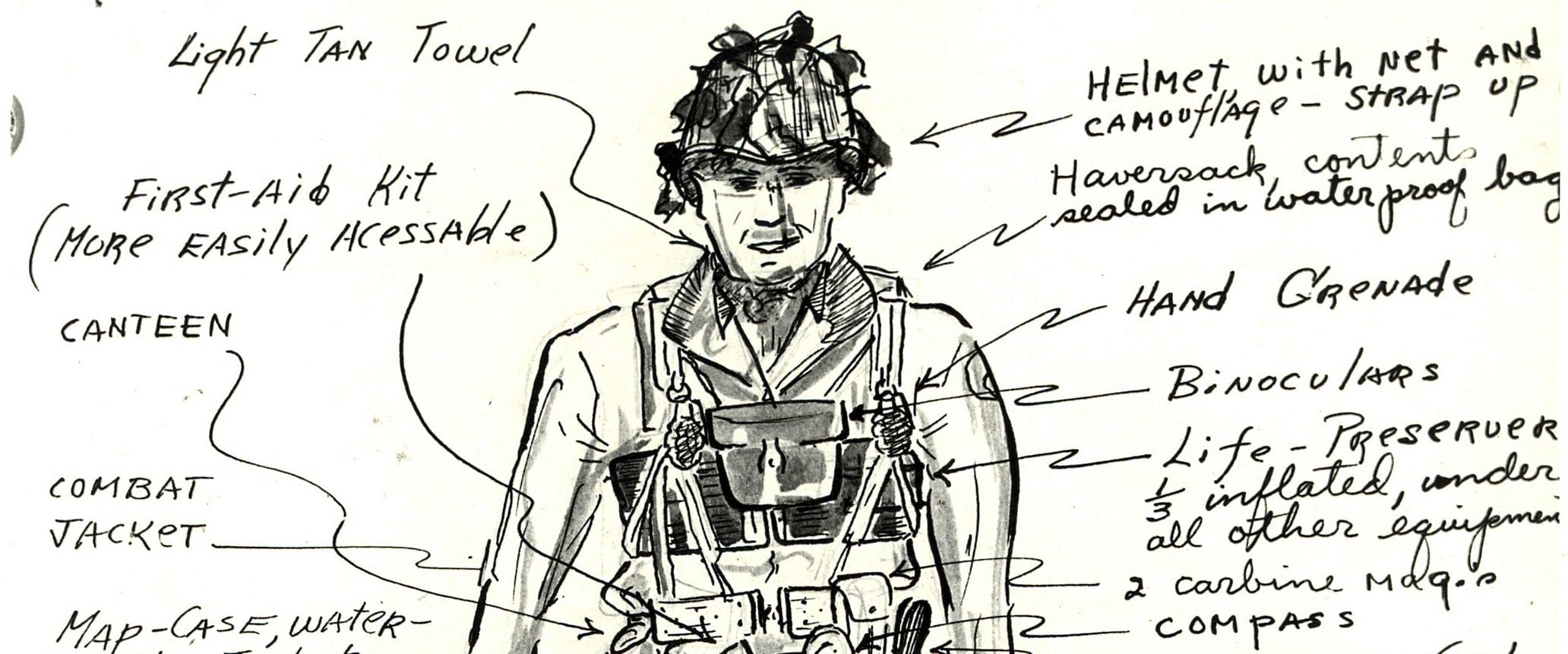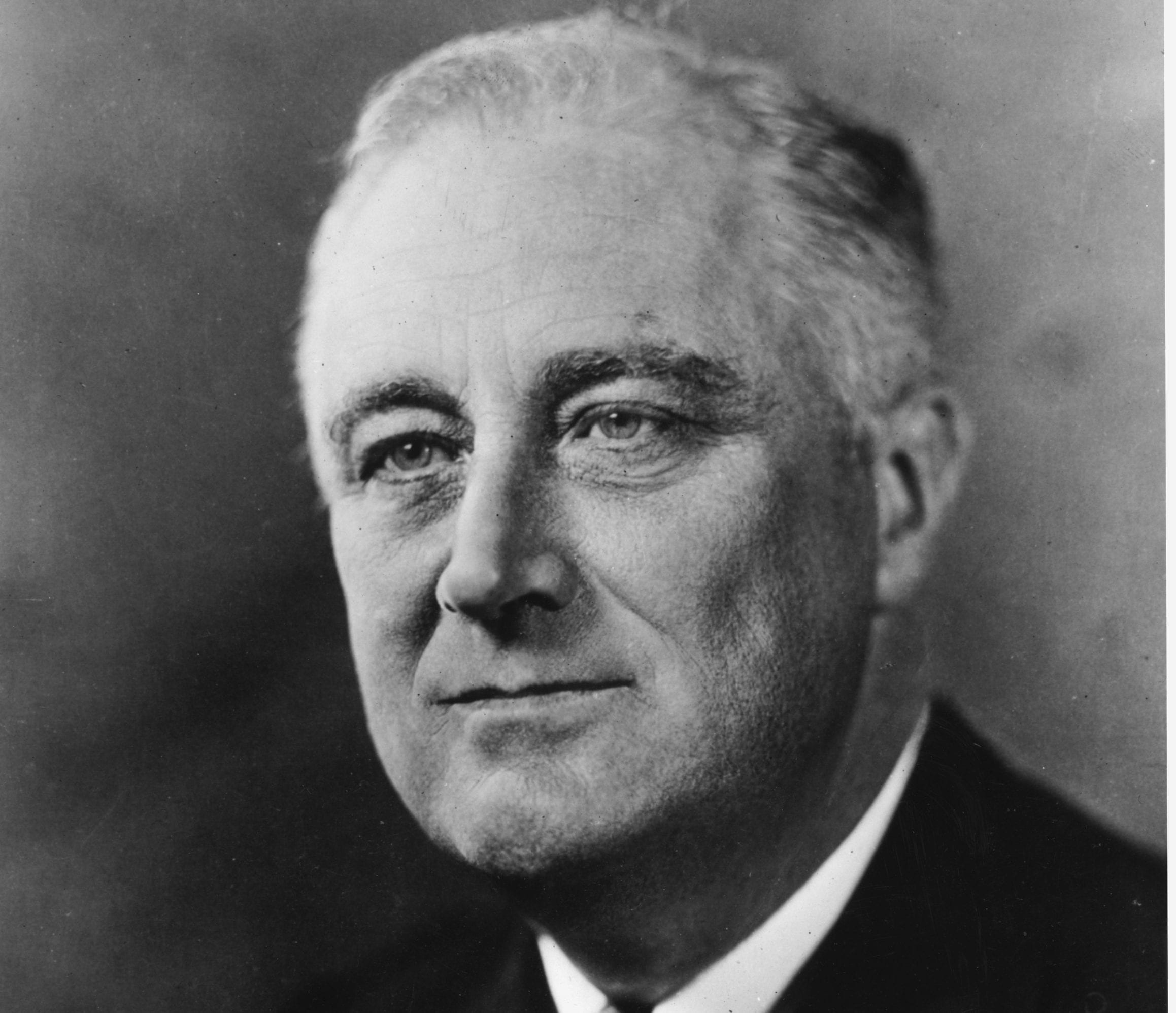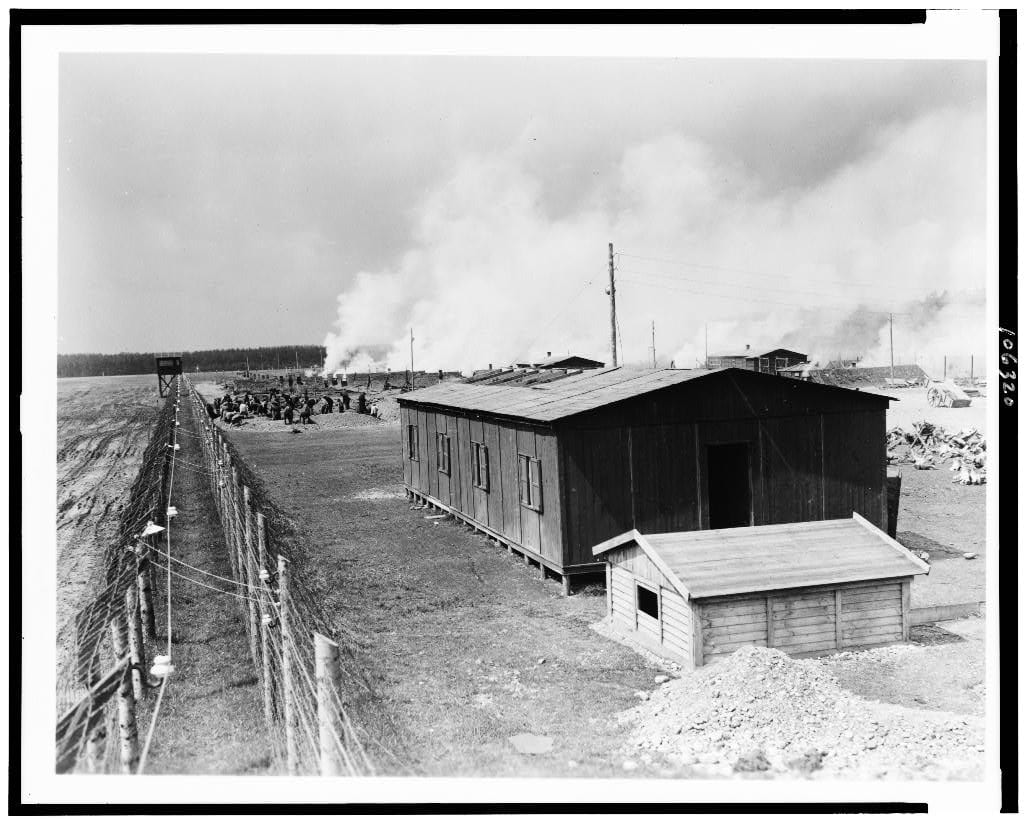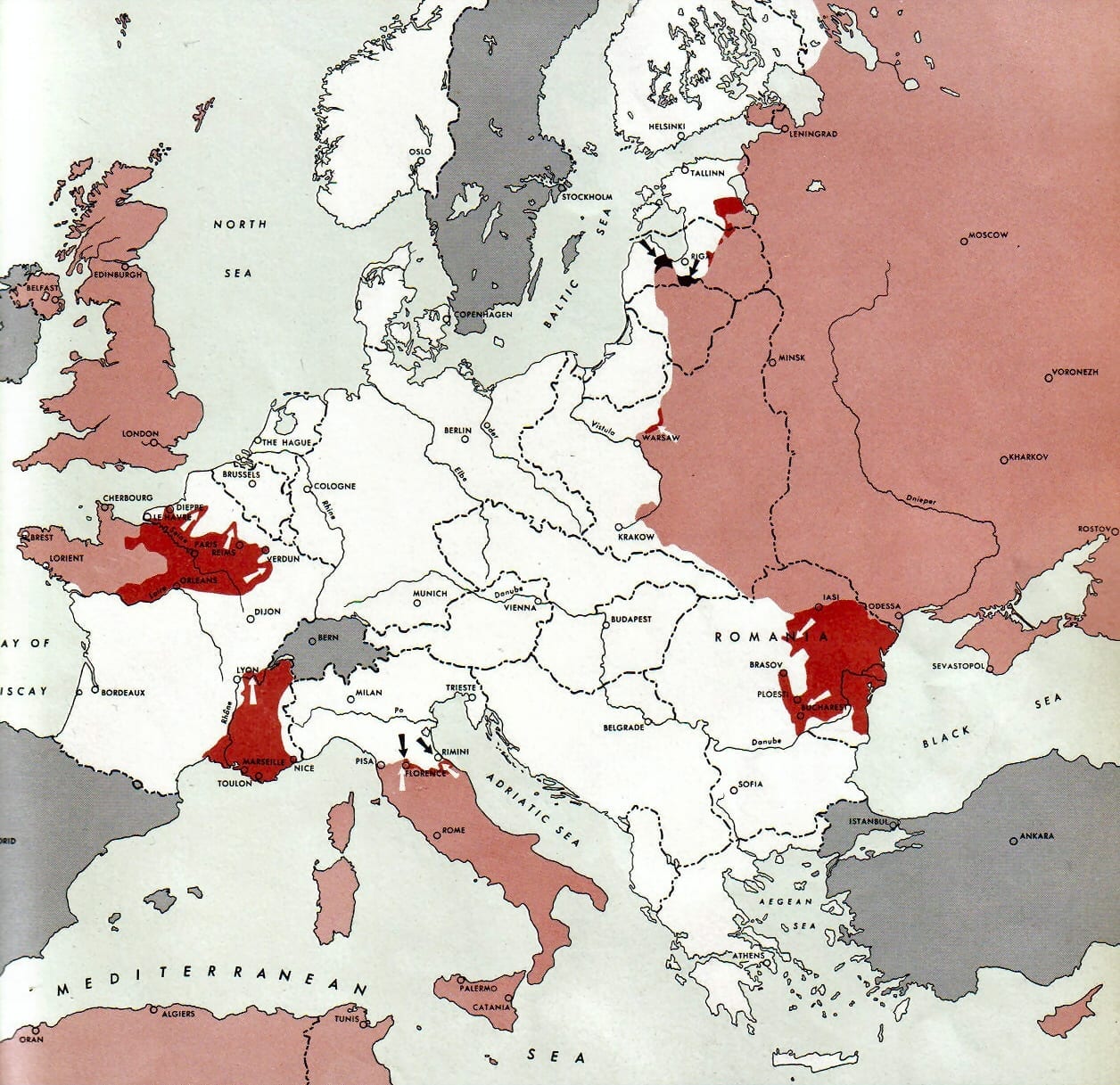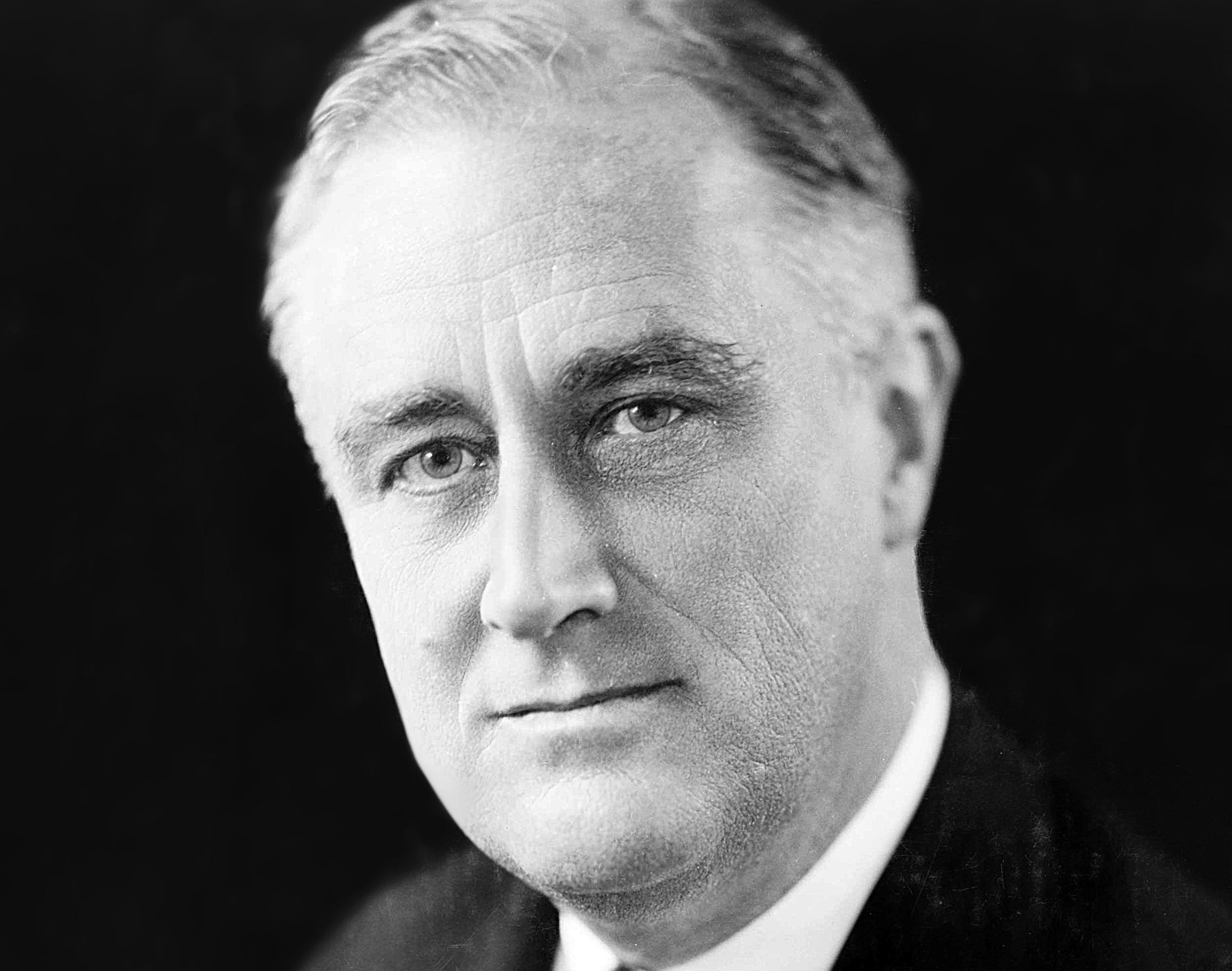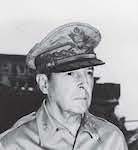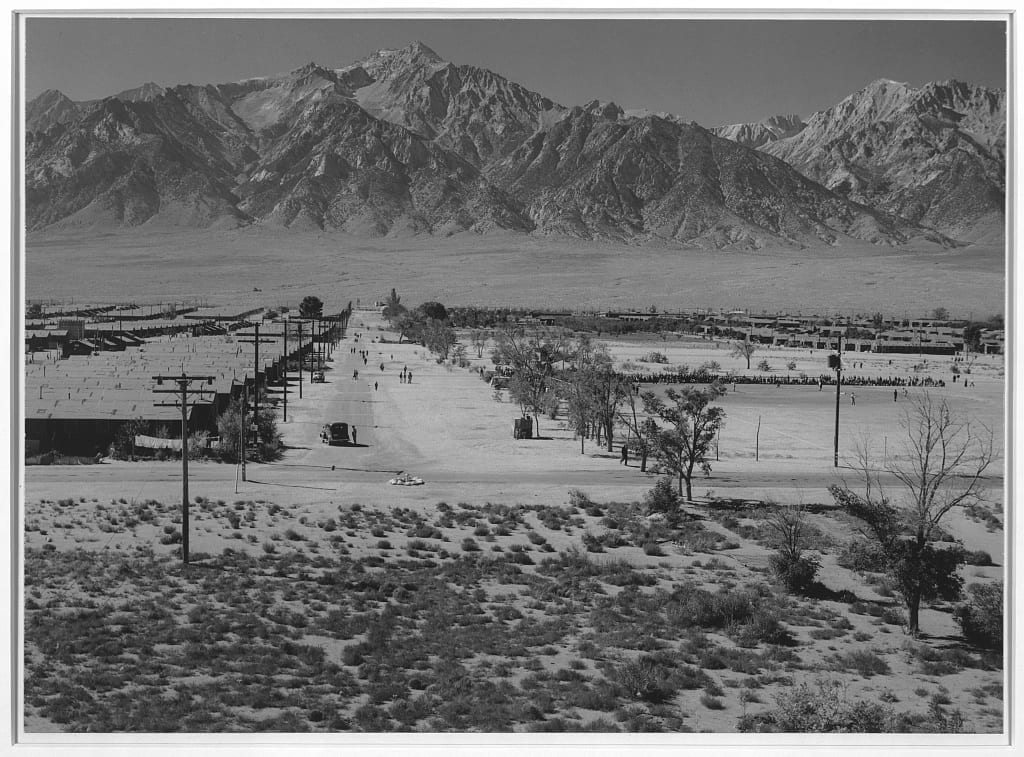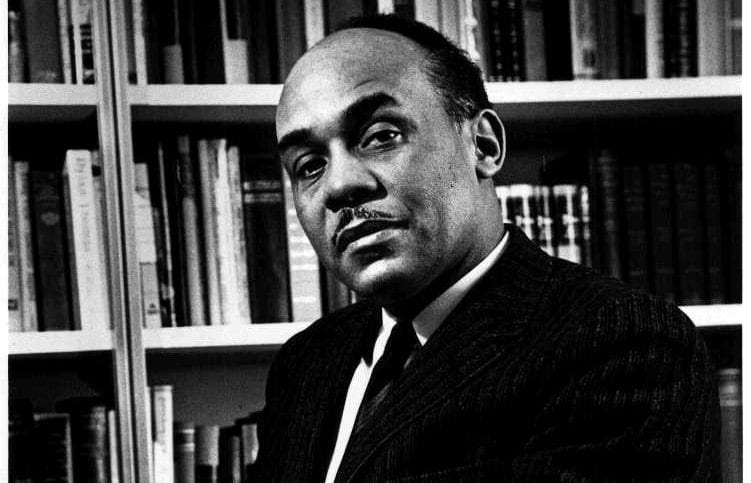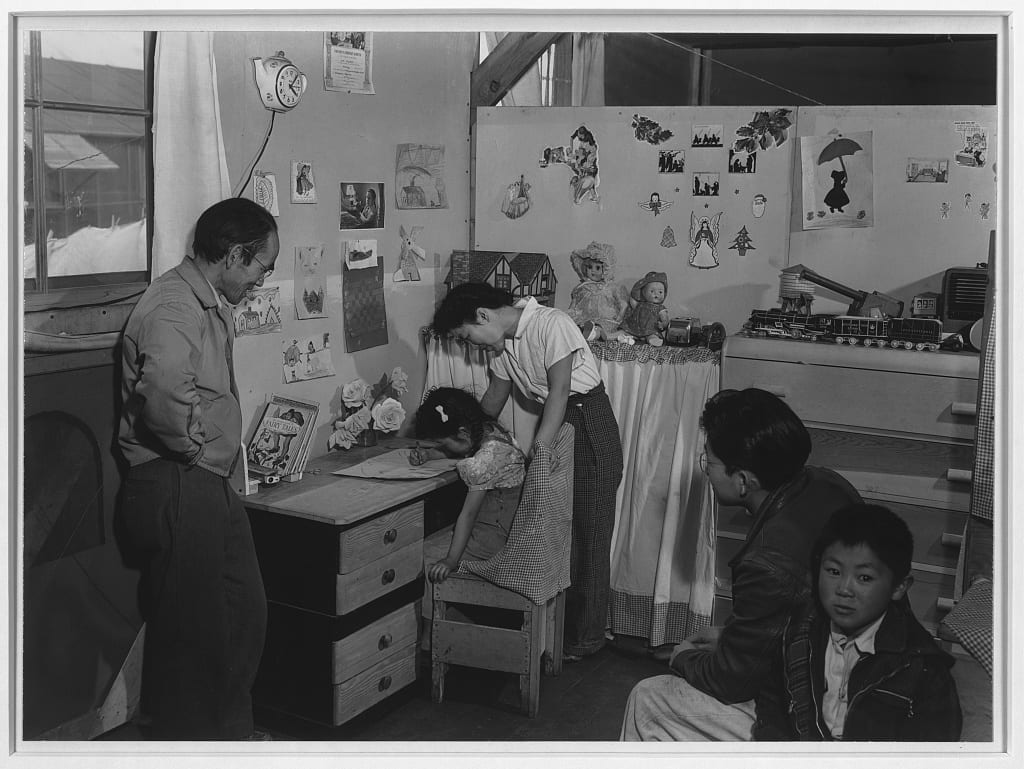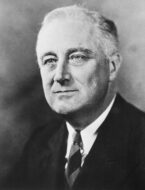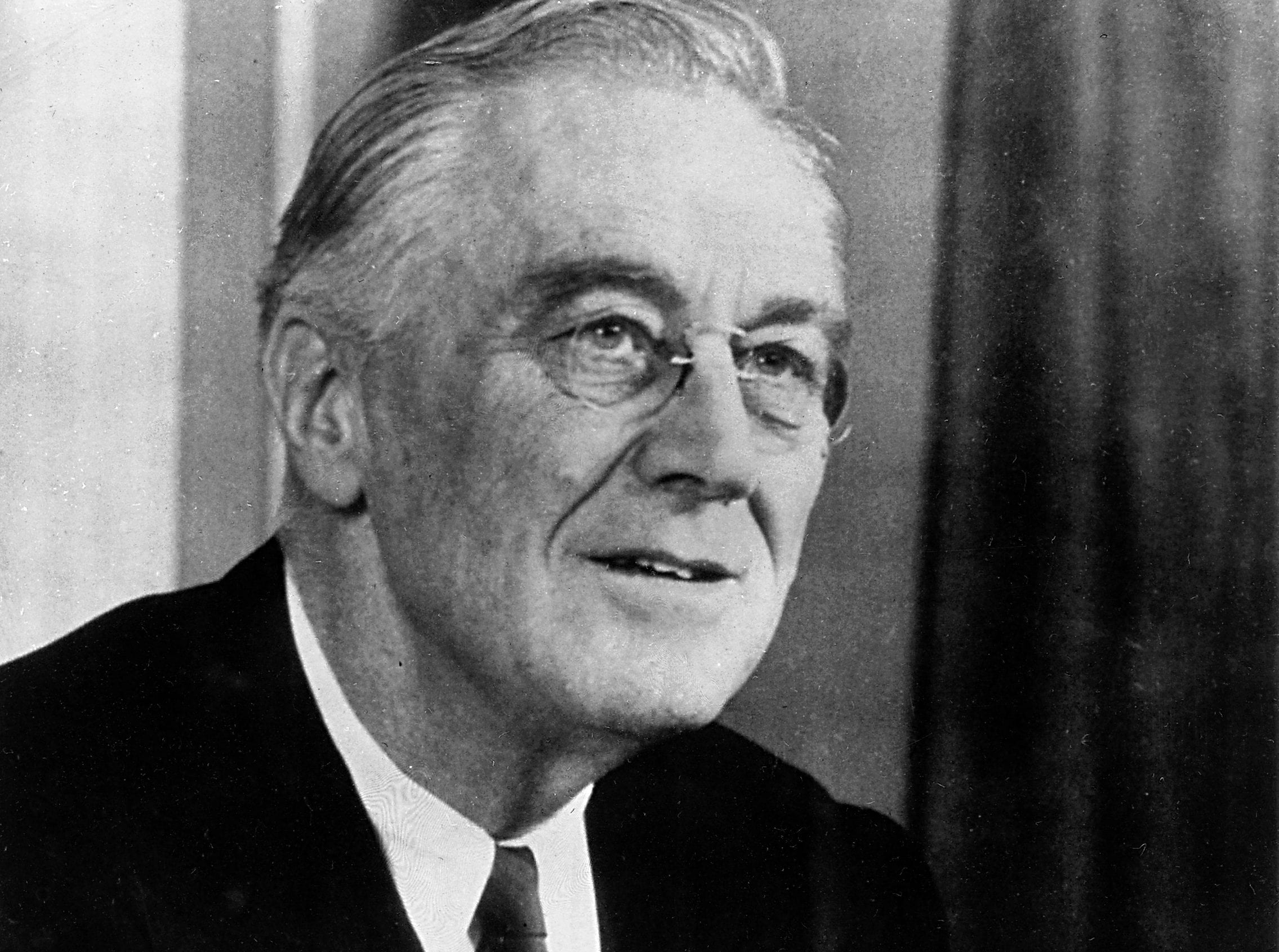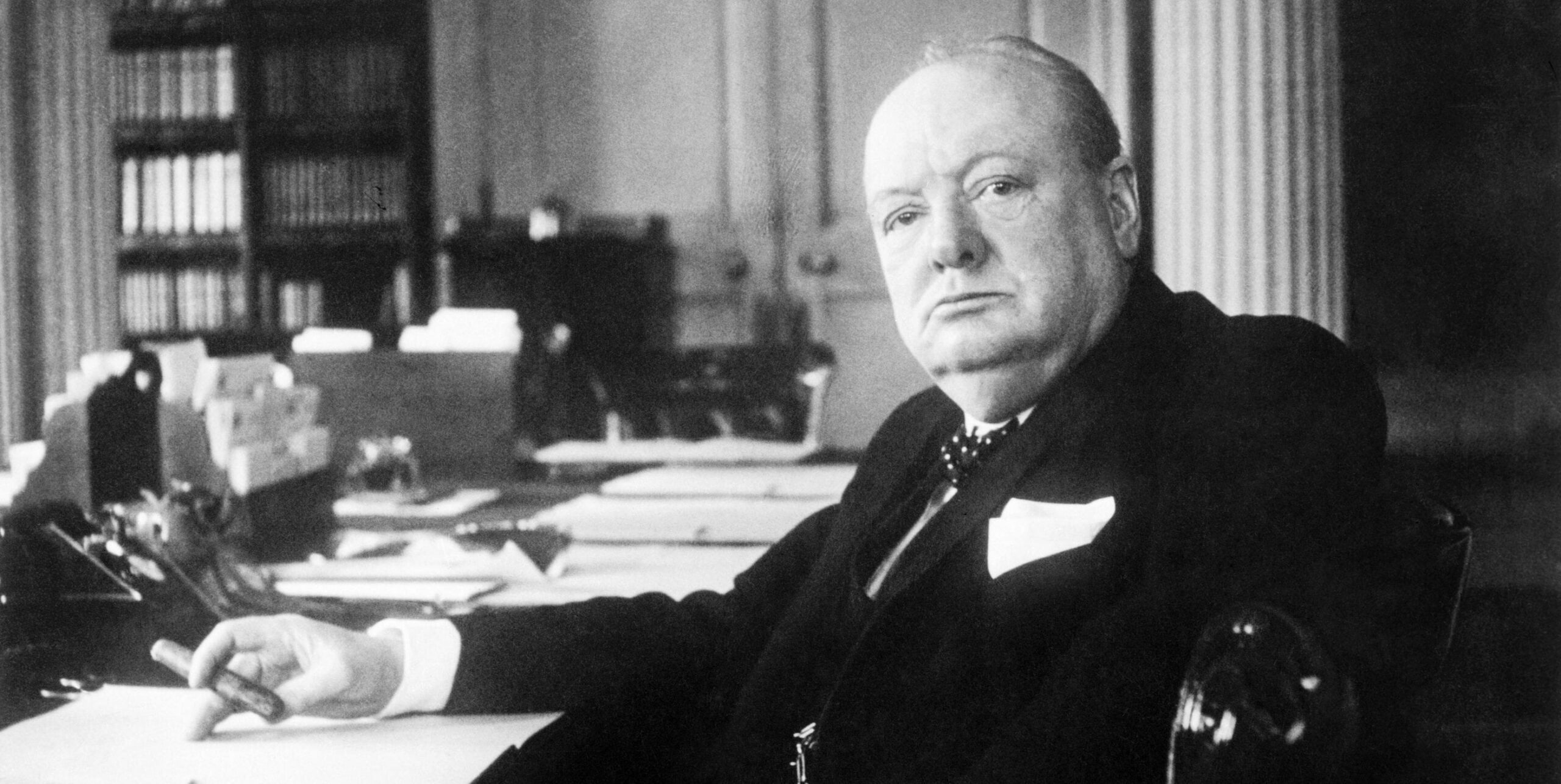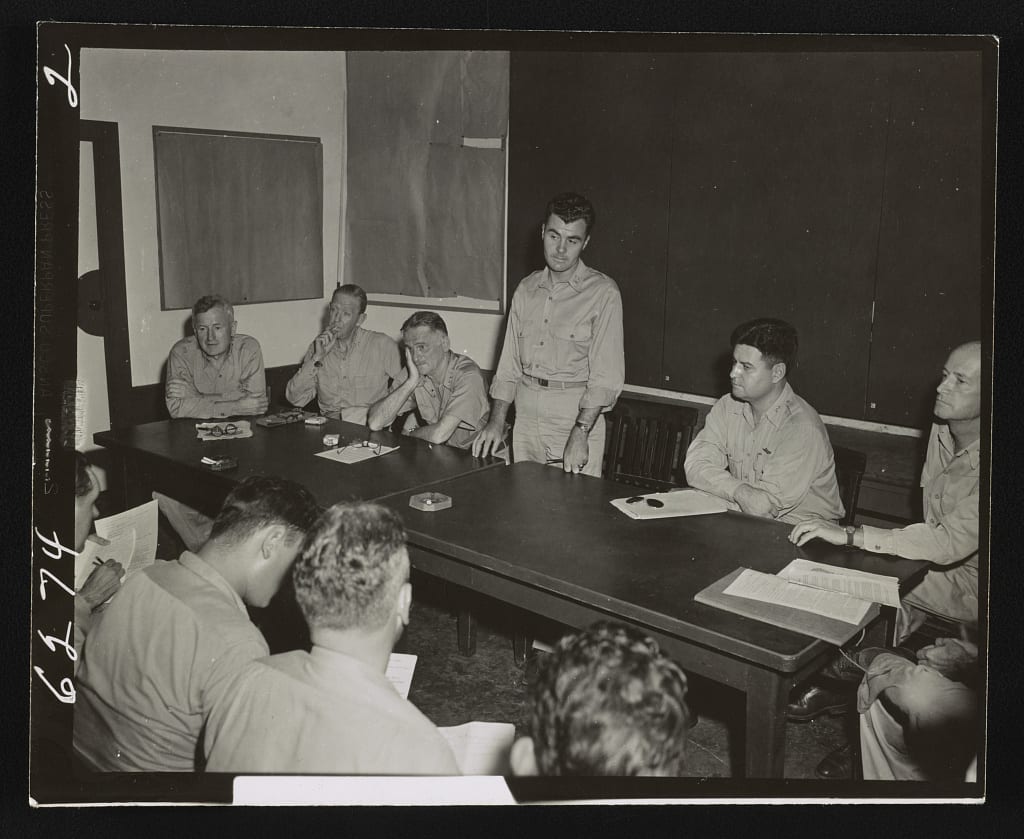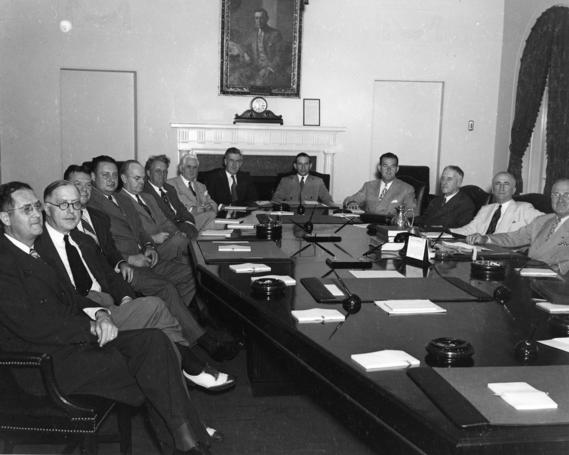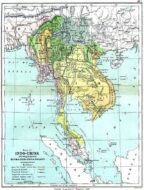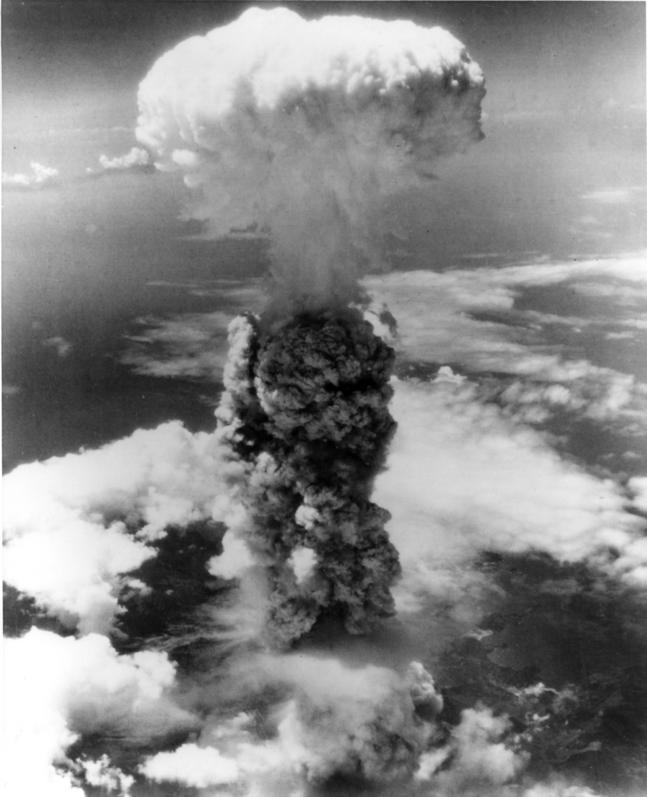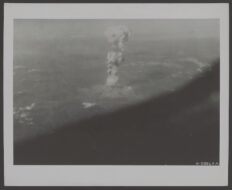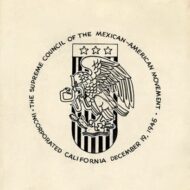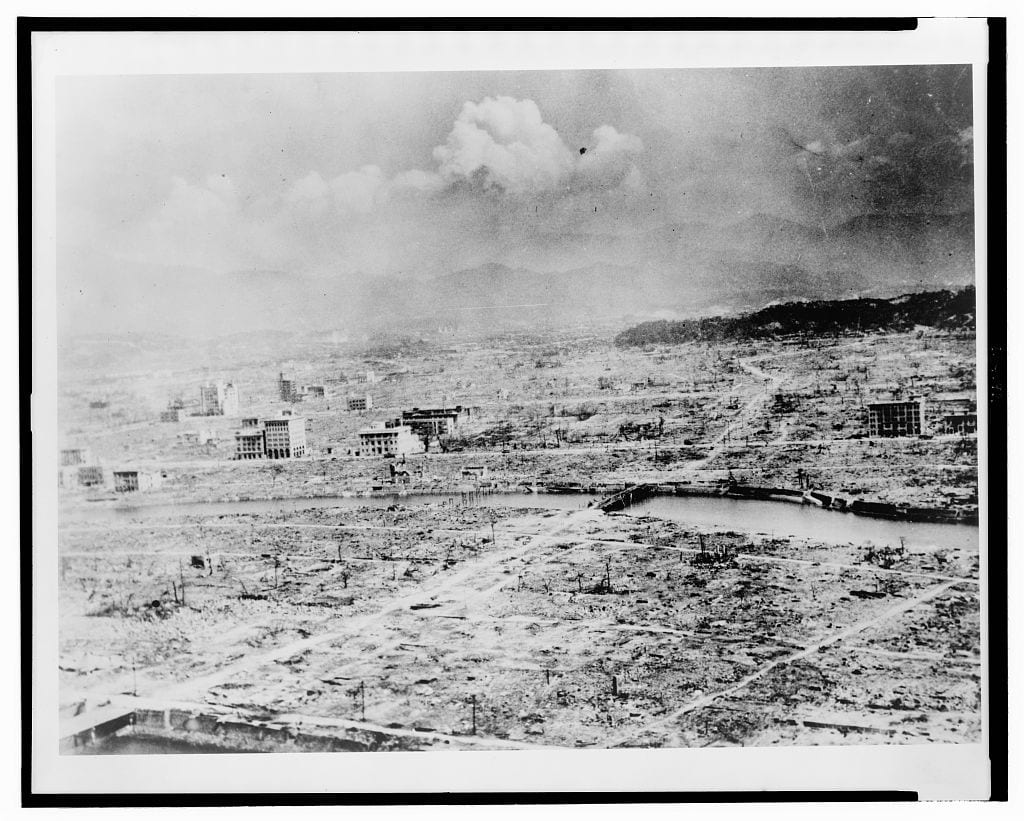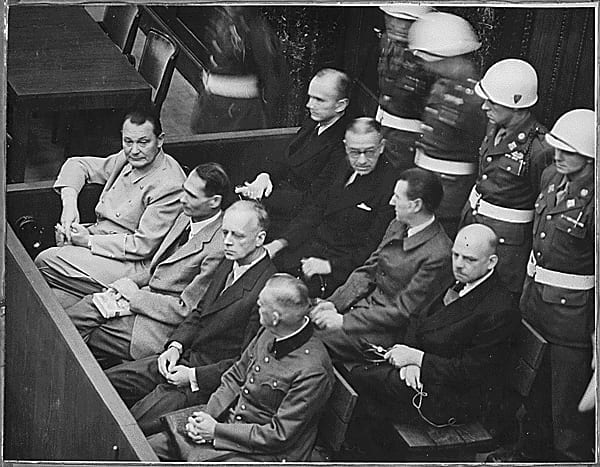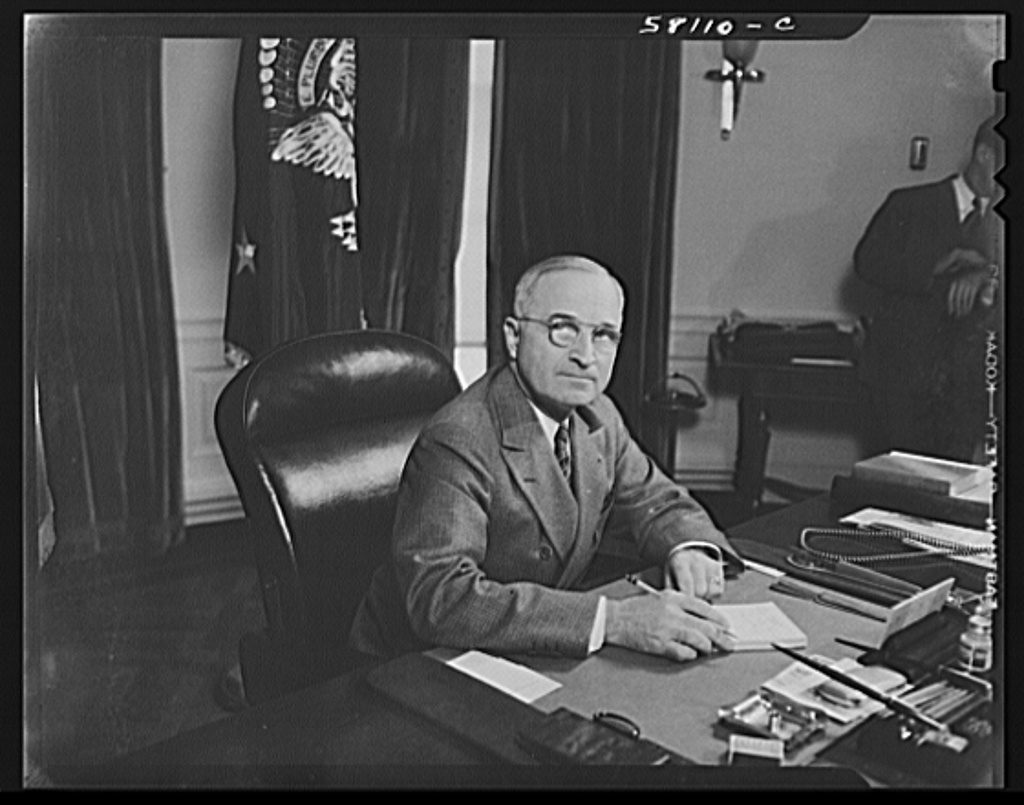
Herbert Hoover, Addresses Upon the American Road, 1940-1941 (New York: Charles Scribner’s Sons, 1941), p. 103 – 114. Available online from Herbert Hoover Presidential Library.. https://teachingamericanhistory.org/5bms.
After ten weeks of observation I wish again to speak to my countrymen upon America’s relation to this war. I shall speak analytically and dispassionately, for cool thinking is needed now as never before.
Since ten weeks ago the military scene in the world has enormously shifted. New objectives for the American people have been advanced. The Navy has been ordered to start shooting. Our people are bewildered and divided.
No one will deny that if we keep up this step-by-step policy it will lead inevitably to sending our sons into this war. Nor will anyone deny that the realization of the objectives set before us leads to that same fate. It is the ultimate end of this road that must be looked at. And that I propose to discuss tonight.
But before I proceed, let me make certain matters plain.
If we would preserve the very spirit of free institutions American boys must not be sent to death in this war without the specific declaration by the Congress. Congress should not be eliminated. And in the support of free institutions this debate must continue until Congress shall declare war.
Debate on war and peace ought to be lifted above intolerance and accusation. Those who sincerely and openly advocate sending our boys into this war are entitled to respect. And those who oppose it are entitled to like consideration.
I hold, and 99 per cent of Americans hold, that totalitarianism, whether Nazism or Communism, is abominable. Both forms are unmoral because they deny religion and there is no sanctity of agreement with them. They are abhorrent because of their unspeakable cruelty and their callous slaughter of millions of human beings. I abhor any American compromise or alliance with either of them.
THE WAR SITUATION
A cold survey of this world situation will show that the dangers of ultimate totalitarian success are very much less than even ten weeks ago. The fratricidal war between Hitler and Stalin is daily weakening both dictators.
Hitler may gain from Russia some supplies, but he now faces all the rest of Europe exhausted of its pre-war stocks of food and material. Although he has won unprecedented military victories, he has kindled behind him a consuming fire of hate. It is now evident that he has failed to convert to Nazism the 200 million people that he has invaded. He cannot recruit a division of dependable soldiers among them. They hate him. If he occupies all Russia it will add another 130 million haters. Of the 160 million people in Germany and its Allies, many are becoming weary of war and of death. The Hate of Hitler will be more terrible than the blizzard was to Napoleon. His kingdom cannot live, even though he has no military defeat on the Continent.
We are assured Hitler cannot cross the English Channel with his armies. And England is even more impregnable because of this breathing spell for production of planes, tanks and ships and our increasing aid in war tools. Her loss of ships and supplies at sea has greatly decreased, largely due to her more effective air patrol. And she daily becomes stronger in air attack on Germany.
The actual dangers to America are less today than at any time since this war began.
Thoughtful men agree that the revolution in weapons makes the Western Hemisphere impregnable from invasion by Hitler. A statement of mine some time ago was challenged. But it has been more than confirmed by Colonel Phillips of our United States Army General Staff who recently wrote:
"The bomber has made the American coast impregnable to invasion.
"And this still would be true if our Navy were inferior to that of any invading power.
"It makes it possible for this country to insure not only its own continental territory… but… to insure the impregnability of all North and South America."
And I may add that if Hitler had all the shipyards in Europe he could not in five years build an armada big enough even to start across the Atlantic.
Hitler is on his way to be crushed by the vicious forces within his regime. Patience for this is far better than spending the lives of our boys.
Under any American policy, whether interventionist or non-interventionist, in either Europe or Japan, if we have common sense we will concentrate—upon building our production, give Britain her tools and await the development of all these forces, both East and West.
FREEDOM OF THE SEAS
Mr. Roosevelt spoke last Thursday night upon the freedom of the seas and the recent incidents.
The President is right in vigorous protest at firing upon American warships. He is right in protest at sinking American merchant ships without adequate protection to the crews, even though they were all carrying contraband.
Any definition of freedom of the seas in wartime is largely academic. Britain could not accept the President’s definition and carry on an effective blockade.
But the President’s policy of edging our warships into danger zones, of sending American merchant ships with contraband raises the most critical of all questions. These steps to war are unapproved and undeclared by the Congress. That is not in accord with the spirit of representative Government and it should be remembered that these incidents are the consequence of violating the spirit of the Neutrality Act. There are other ways than going into this war to secure reparation for transgression of our just rights and respect for them.
ESTABLISHING FREEDOM AMONG MANKIND
The basis of argument of those who would have us send our sons into war has greatly shifted in the last two months. The increasing emphasis is upon our moral obligation to send our boys to war in order to establish freedom for all men.
President Roosevelt on January 6 of this year stated that we seek "everywhere in the world" freedom of speech and expression, freedom of religion, freedom from fear, freedom from want. He has emphasized this many times since.
On August 12 the President and Prime Minister Churchill issued their Atlantic statement. They expanded these points by nine more to thirteen. They are: no annexations, self-determination, self-government, equality of trade, social advancement, some sort of freedom of the seas, abandonment of the use of farce, and disarmament of aggressor nations, and permanent peace.
Two weeks ago Mr. Roosevelt again referred to these questions and "our responsibility to build a democratic world."
I believe in the aspirations for freedom and peace in the world. I have myself urged and prayed and worked for them over a quarter of a century. I pray that they may yet come to the world.
But today the realistic questions which confront us are—Can America impose these four freedoms upon Europe and Asia by sending our sons into this war?
Can America impose the nine new points on the world?
Shall we not lose in America all these freedoms by the very necessities that arise if we send our sons into this war?
Here, my countrymen, you should listen to the stern voice of American experience.
Before the last world war we were indignant as we are now at aggression by dictator governments. Our sense of compassion and justice was aroused on behalf of the victims. We believed the New World could bring to the Old a new order of justice, right and freedom. We would make the world safe for democracy. We would fight a war to end all war.
I advocated our joining in that war. I occupied highly responsible positions in the war, the peace and its aftermaths. I was part of these events. I can speak from facts, from record, from personal knowledge.
President Wilson twenty-three years ago in his 14 Points and supplementary provisions not only declared every one of all the Churchill and Roosevelt principles and freedoms, but Wilson included still more freedoms and protections. He reflected the whole idealism of America.
We won that war. But we lost the peace. At least so far as our high purpose of freedom and permanent peace was concerned.
Europe degenerated into a hell, the brew from which poisons the earth today.
It is the causes of this failure in the last world war that are important for us to examine now.
The causes of that failure of only twenty-three years ago lie far deeper than the viciousness of the Treaty of Versailles, or the failure of the League of Nations. The causes of that failure lie deep in the invisible forces which dominate and vibrate through the races which comprise the millions of people of Europe.
To most Americans Europe consists of magnificent cities, cathedrals, cafes, art, music, literature, great universities and monuments to heroism and human progress. Men among them have fought and died for liberty. to lift the dignity of man. From them all we have received magnificent heritage of human thought.
But other forces make the fates of these people. Here are 400 million people on the continent divided into 26 races. They are crowded cheek by jowl in an area less than two-thirds of the United States. Suppose each of 26 of our states had its own language, its own racial inheritance, its own economic and political problems. And suppose through all these races for centuries have surged the forces of nationalism, of imperialism, of religious conflict, memories of deep wrongs, of age-old hates, and bitter fears. Suppose each had its own army and around each of these states was a periphery of mixed populations that made exact boundaries on racial lines hopeless. The outcries of separated minorities would be implacable and unceasing cause of war. Suppose they all had different forms of government and even where it was a democratic form it was class government. That would be Europe.
The standards of living of these great masses of people in Europe are at the very base of the struggle for bare existence. Economic rivalry, setting up of barriers to trade, the desire for elbow room in growing nations, and the pressure of low living standards force quarrels and grabs for territory for exploitation of other parts of the earth. And periodically there boils up among these people some Pied Piper with silver tongue, calling some new Utopia. Or the new Man on Horseback calls his race to wars of aggression and ambition. Indeed with a vicious rhythm these malign forces seem to drive nations like the Gadarene swine over the precipice of war.
In contrast, here in America during these 400 years since our beginnings we have grown steadily apart from the ideas of Europe. Every one of our ancestors came here to get away from this dread turmoil. Ours has been a continent of magnificent resources from which we have obtained a greater ease of life. Freed of European hates and fears of great armies on our borders we have developed new concepts of liberty, of morals and government.
Mr. Wilson’s 14 Points and supplementary provisions had before the Armistice been formally accepted by both the Allies and the Germans as the basis of world peace. One of the most painful chapters in American history was the antagonism to these ideas by Allied statesmen the moment the war was won.
But the whole concepts which the New World brought to the Old were at conflict with the grim forces that faced European statesmanship.
The victorious Allies in Europe were impoverished. They had suffered dreadful butcheries and wrongs. They demanded revenge, punishment, colonies, and money. Their statesmen, representing their peoples, were not free agents to make peace upon President Wilson’s basis. A thousand years of history, fear and hate demanded and obtained seats at that peace table. They will sit at the next peace table of Europe. And America will be just as foreign at that table again.
President Wilson made a valiant fight for his new order for mankind. But it was the collision of warm idealism born in a New World, against the glacial forces of the Old World. The treaty would have been worse but for Wilson.
It was not the League of Nations which brought calamity in the world. It was the eternal malign forces of Europe.
Mr. Churchill himself has, with his usual bluntness, said three years ago, "Hitler’s success, and, indeed, his survival as a political force, would not have been possible but for the lethargy and folly of the French and British governments since the war."
American ideas of freedom and government are the result of slow growth in the hearts of people. It takes decades and centuries. They cannot be imposed by words, no matter how eloquent. They cannot be imposed by force. They cannot be imposed upon nations by treaties any more than they can be imposed by battle. We tried it once under the most perfect setting of triumphant victory over aggression, and with all the power and prestige of America.
The stern voice of experience says that America cannot impose its freedoms and ideals upon the 26 races of Europe or the world. We should not again sacrifice our sons for that proved will-o’-the-wisp.
MAINTAINING PEACE
Maintaining peace is a separate problem. While we can-not impose freedom, America can and must take part in maintaining peace in the world. We can contribute more to it if we are not exhausted morally, economically and militarily by sending our boys into this war. I hope to discuss it at some future time.
DESTROYING THE FOUR FREEDOMS AT HOME
The first trench in the battle for the four freedoms is to maintain them in America. That rests upon fidelity not only to the letter, but to the spirit, of constitutional government. Failure of Congress to assert its responsibilities or for the Executive to take war-like steps without the approval of the Congress is a direct destruction of the safeguards of freedom. We are on the way to weaken these freedoms in America not to strengthen them.
Freedom of speech and expression are being stifled by war phobia right now in the United States.
Incidentally, there is a fifth freedom. That is economic freedom. Freedom for men to choose their own callings, to accumulate property in protection of their children and old age, freedom of private enterprise that does not injure others. The other four freedoms will not survive without this one.
A large number of the men administering our preparedness program do not believe in this freedom. With a long war—and it will be long if we put our boys into it—then their methods with the inevitable debt, inflation, unemployment and demoralized agriculture will make us over into State Socialism, probably under some other name.
And listen, my countrymen, to another voice of experience. Freedom from want was never won by a war.
The last world war cost us forty billions in debt and taxes in three years. Since then we have paid another forty billions in interest and in support of its disabled, its widows, orphans and veterans. We may assume one-third of our people are today underhoused, underfed, underclothed and undereducated. And the last war was largely the cause of that poverty. These people have no freedom from want. But had we used those eighty billions for them instead of war we could have given every family of them a modern five-room house as a gift with all the gadgets. We could have given every person of them as a gift a whole outfit of new clothes once every year since that war. We could have given every family of them as a gift seven pounds of meat and seven pounds of bread every week ever since that war. We could have wiped out the one-room school houses. We could have built a modern clinic in every backward county. And we would still have money left. Freedom from want comes alone from keeping out of war, Underfed, underhoused, underclothed, undereducated people are the inevitable product of war.
There are certain backgrounds upon which all freedom in America must rest.
Russia is rightly defending herself against aggression. But when it comes to sending our sons into this war we are confronted with something else. We need to take a long look.
Russia is also an aggressor nation against democracy. And what happens to the millions of enslaved people of Russia and to all Europe and to our own freedoms if we send our sons to win this war for Communism?
ANOTHER AMERICAN EXPERIENCE
Twenty-five years ago and again today are not the only times we have been troubled by these eruptions of dictatorships in Europe.
Some Americans have perhaps forgotten that we had a vigorous interventionist movement in the United States urging us to join with England in combat with Napoleon. That interventionist movement was led by Fisher Ames, a journalist of that day, one-time member of Congress, and said to have been prevented only by illness from becoming President of Harvard University. The leader against joining in war was one Thomas Jefferson.
Fisher Ames thought Jefferson was reactionary and did not realize the modern forces. Ames insisted that Napoleon would dominate the world, including the United States. He was full of pungent phrases. I give a collection of them: "I am sure we are to he subjugated by Bonaparte." "Let no man in America deceive themselves. If Bonaparte prevails (in Europe) we will be his vassals." "We shall be reduced to slavery." "In case Europe accepts peace and chains we of the United States are ripe and rotten for servitude and tribute." "Britain fights our battles." "One single hope of security is the British Navy." "If Russia is disarmed how long will it be before England will be done for?" "We are infatuated enough to think America is a hiding place for liberty."
And Ames had some accomplishment in name-calling. Generally he felt Jefferson and Madison and Monroe were the Fifth Column of that day. He says of them, "Our noisy liberty-men are eager for power and indifferent about the fall of our country."
And in those times ours was a puny nation of less people than New York City today. Except for the Fisher Ames the Americans of that day were not scared.
A PROGRAM OF ACTION
As the situation stands today, we can sum up certain bases upon which American policies should be predicated:
- If we prepare we cannot be invaded nor our economic life be dangerously impaired.
- England can prevent invasion of her shores if we give her the tools, and even warships, without our sending our boys to death, either on ships or land.
- Hitler is on the way to be crushed by the vicious forces within his own regime.
- We have proved by hitter experience that it is a futility for us to try to impose freedom and justice upon the world by war.
- The ideas and ideals of the West can grow and spread abroad by our demonstration in our own country. They will die in the world if the freedoms shall become weakened or die in America.
- To send our sons into this war must also be weighed in the scales of future America. Should we not weigh in this scale the dead and maimed? Should we not weigh the one-third of underfed, undernourished, underhoused. undereducated Americans for another generation that will be inevitable? Should we not weigh the loss of our own freedoms?
And where do these facts, reasons and conclusions point?
What is the constructive policy for America? Is it isolation? Is it intervention? Neither is possible. Neither is wisdom.
We must have impregnable defense. This defense must include the other 20 nations in the Western Hemisphere. That is not isolation.
We must give the tools of defense to the democracies. That is not isolation.
We should reserve our strength that unexhausted we may give real aid to reconstruction and stabilizing of peace when Hitler collapses of his own overreaching. That is neither isolation nor intervention.
We can do our greatest service to civilization by strengthening here in the Western Hemisphere free institutions and free men and women. That is not isolation. It is a service to all mankind.
But to send our boys out to kill. That is intervention. We hear much urging to national unity. We could easily get unity.
If we stopped calling names.
If we directed our preparedness policies to the minimum interference with economic freedom.
If we gave aid to democracies alone of Europe and Asia, and gave it generously.
If we stopped provocative steps that may take our sons into war.
If no war-like step be taken and no agreement be made that is not submitted to the Congress. If the Congress decides for war then we accept it.
I believe real unity can be had among the American people in these proposals.
Let us never forget we came over the ocean to this oasis of liberty. We extended this oasis greatly by mighty streams of freedom. They were dug and builded by the toil of our fathers and defended with their blood. Are we now to march out into the desert of European war and see the wells of freedom dried up behind us?
Wake Up America! The Hour is Late
September 17, 1941
Conversation-based seminars for collegial PD, one-day and multi-day seminars, graduate credit seminars (MA degree), online and in-person.

